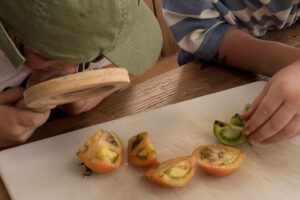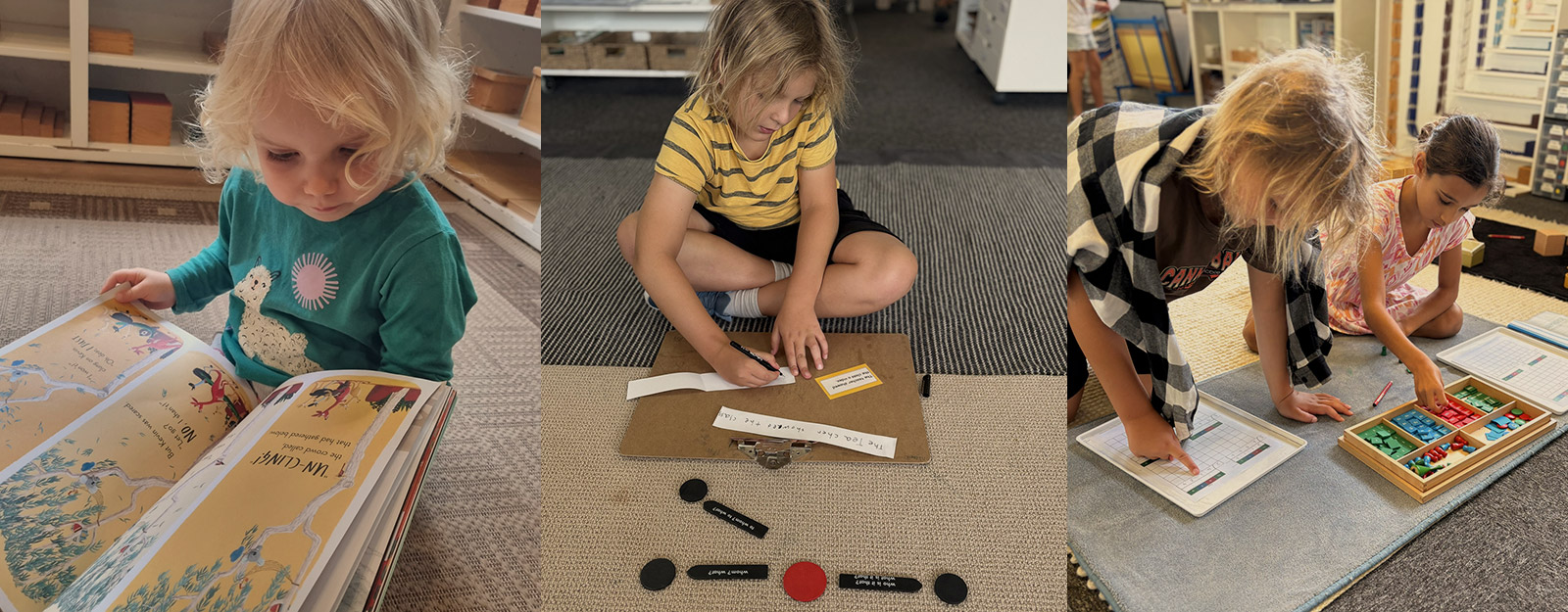2025 Newsletter Term 01 | Issue 02
- Posted by Farmhouse Montessori School
- Categories Farmhouse News
- Date April 15, 2025
Upcoming events & Important Dates
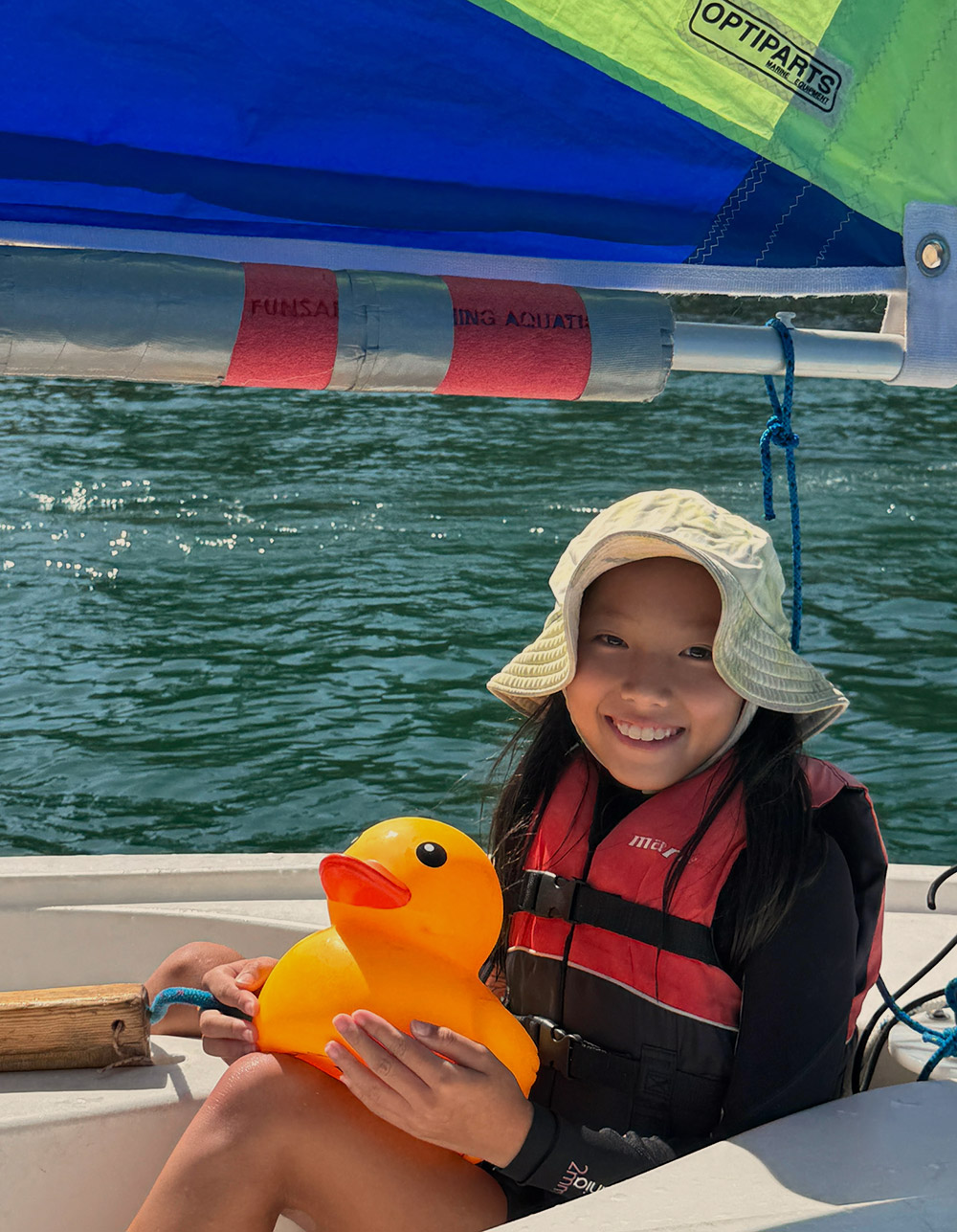
TERM 2 2025
Easter: Good Friday 18th April & Easter Monday 21st April
Autumn school holidays – Monday 14th April to Thursday 24 April.
Anzac Day – Friday 25th April
Pupil Free Day – Monday April 28th
Term 2 – Tuesday April 29th
| Apr | 28th | Staff Development – Pupil Free Day |
| Apr | 29th | Term 2 Student Start Date |
| May | 2nd | Parent Information Session – 8:15 a.m. – Primary School |
| May | 6th | Mother’s Day Morning Tea – Preschool |
| May | 8th | Mother’s Day Morning Tea – Preschool |
| May | 9th | Mother’s Day Morning Tea – Primary School |
Principal’s Message
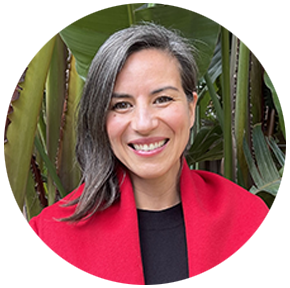
Dear Farmhouse Montessori Families,
As we near the end of Term 1, I am filled with appreciation for the incredible educators and nurturing environment that makes Farmhouse Montessori School so special. Seeing the child-centred approach that fosters independence, creativity, and a lifelong love of learning in our students — continues to inspire me every day.
It has also been wonderful to welcome so many of our preschool families touring our primary school campus in Manly this term set in North Head Sanctuary. As parents prepare and continue their child’s journey from the preschool to the primary school, nothing beats seeing the morning work cycle in action in our primary school classes. You might even see an echidna while on site in the sanctuary. You are welcome to sign up for a campus tour via our school website.
I am excited to announce the launch of our new Parent and Child Programs in Term 2 at our North Head Campus in Manly. These enriching sessions are designed for infants (4–14 months) and toddlers (14–24 months) and their parents or caregivers. Each 8-week program offers a welcoming environment to bond, explore, and build community while discovering how Montessori principles can support development at home. If you are interested in learning more, please fill out the expression of interest form.
As we approach the school break, I encourage families to take advantage of the fantastic range of local school holiday activities available on the Northern Beaches. From nature walks to creative workshops, there’s something for every child to enjoy — visit northernbeaches.nsw.gov.au/whats-on/school-holidays to explore what’s on offer.
Finally, it is with a full heart that I share my sincere gratitude for the entire community who has been so supportive of my tenure at the school as Principal of Farmhouse Montessori School. It has been an incredible privilege to be part of this extraordinary community. Thank you for your trust, your partnership, and your unwavering belief in the power of Montessori education. I am pleased to hand over to our Deputy Principal, Harshitha Ravikumar, who will be stepping into the role of Interim Principal in Term 2. Harshitha brings deep insight, warmth, and dedication to our school, and I have every confidence that she will continue to lead with care and integrity.
Warm regards,
Alia James | Principal
PRIMARY SCHOOL COORDINATOR’S MESSAGE

Montessori Going Out: A Pathway to Furthering Independence and Learning Beyond the Classroom
In Montessori education, Going Out is an activity where children take their learning beyond the classroom, usually in small groups, and engage with the wider community. It is a unique aspect of the Montessori method that fosters a child’s independence, decision-making skills, and real-world experiences.
- Learning in Action: Children may visit local businesses, museums, parks, or cultural sites related to a topic they’ve been studying in class. The idea is to allow them to extend their learning on topics they are curious about.
- Encouraging Responsibility: The process involves the child planning the trip. They might handle the logistics, such as arranging transportation, budgeting, and organising the trip with their peers. Lots of resources and structures are provided for them in the classroom to help guide them.
- Practical Life Skills: Going Out helps children learn to interact with the world around them, developing social skills, navigating public transport, and working together with their peers.
Calling All Parent Chaperones
From Term 2, 2025 our goal is to re-launch the Going Out program at Farmhouse Montessori School and to do that we will need parent chaperones. A parent chaperone’s role is to accompany the children when they leave the campus to ensure their safety while also allowing them to complete the Going Out with as much independence as possible. If this is something that you think you’d like to do and you have availability during the week please come to our information session on Friday May the 2nd at 8:15am.
Kind Regards,
Chris Deery | Primary School Coordinator
ELOUERA | Stage 1 Infant Community
Language development is a joyful and essential part of the Montessori toddler classroom. At this stage, children are in what Dr. Maria Montessori described as the sensitive period for language—a time when they absorb language effortlessly from their environment, much like little sponges.
In the Elouera toddler class, we nurture this natural development by creating a rich, intentional language environment. Conversations are slow and clear, giving children time to process and respond. We use precise vocabulary and name real objects and actions to support understanding. Whether we’re naming the parts of a flower, matching animal figures with picture cards, or simply describing what we’re doing together (“I’m peeling the banana now”), every interaction becomes an opportunity to build language.
We also observe each child closely to meet them where they are. Some toddlers are already forming simple sentences, while others are just beginning to name familiar people or objects. All forms of communication—gestures, single words, or short phrases—are respected and responded to, helping children feel confident and understood.
Books, songs, rhymes, and storytelling are woven into our days to further enrich vocabulary and spark imagination. Just as importantly, we model listening, turn-taking in conversation, and the joy of sharing thoughts with others.
At home, you can support your child’s language development by:
- Naming objects and actions as you go about your day together
- Offering choices (“Would you like the red cup or the blue one?”)
- Reading familiar books again and again
- Slowing down and allowing time for your child to respond
- Listening with genuine interest, even to the simplest words
Every word exchanged helps build not just language, but connection. Thank you for partnering with us in this beautiful stage of learning!
— Corinne, Anniebelle, Nina, Sarah.
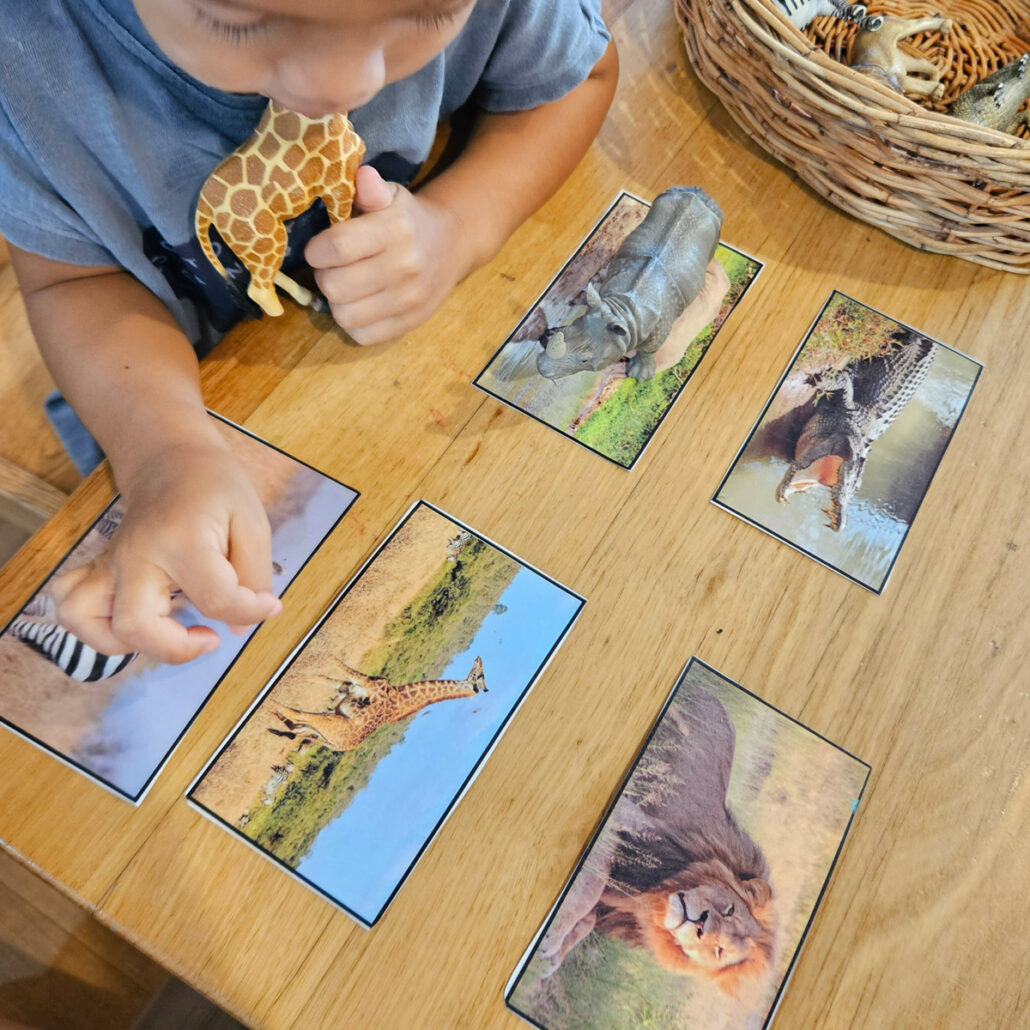
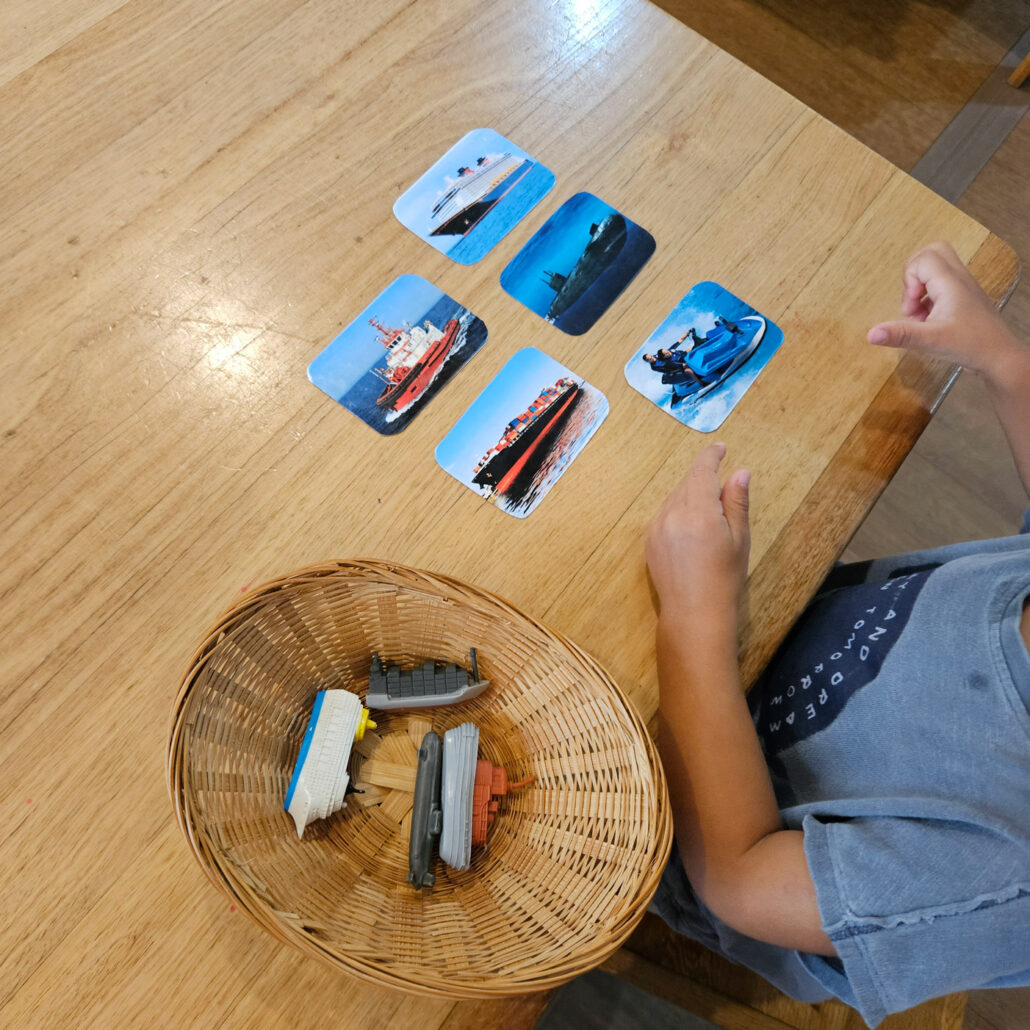
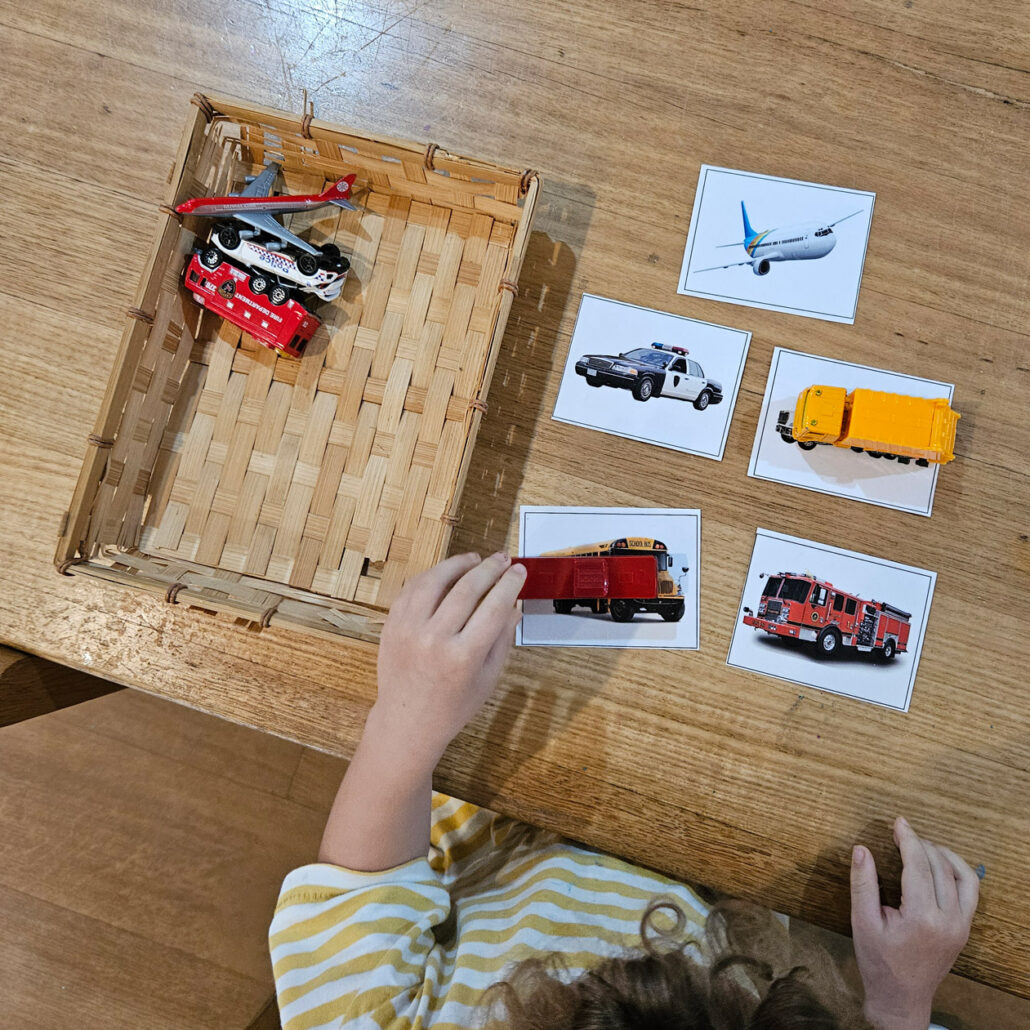
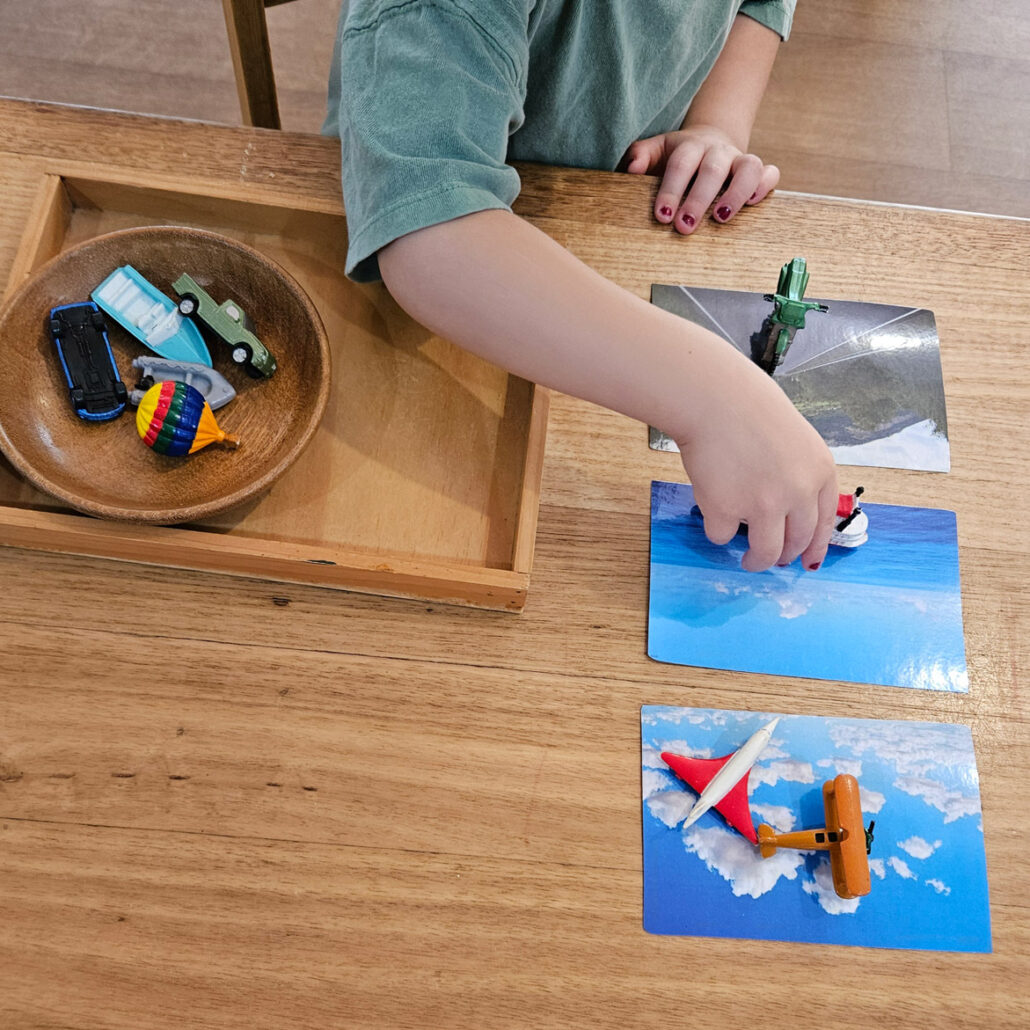
BURBANGANA | Stage 1
Learning Language in the Preschool Years
Language growth in preschoolers is truly amazing. Each child develops language at their own pace, finding their voice when they feel ready to do so. In our Montessori classroom, we encourage children to explore language naturally through conversation, storytelling, and hands-on materials. On any given day, you may see them working with real objects, picture cards, initial sound boards, sandpaper letters, and the moveable alphabet. Each resource is designed to help them connect what they see with the words they hear and speak.
We also love our shared book-reading times, when children come together to listen to a story and discuss pictures. Many children are so excited to bring in a favourite book from home to share with friends. Some children may not be ready to retell the story just yet, but they will often show everyone their favourite page and answer simple questions about it. This kind of sharing helps them feel proud of what they know, builds their vocabulary, and encourages social interaction. With the guidance of the teacher and the welcoming setup of the classroom, language blossoms in a way that feels relaxed, fun, and meaningful for every child.
Warmest regards,
Burbangana educators – Vanessa, Annabelle, Katherine & Helene.
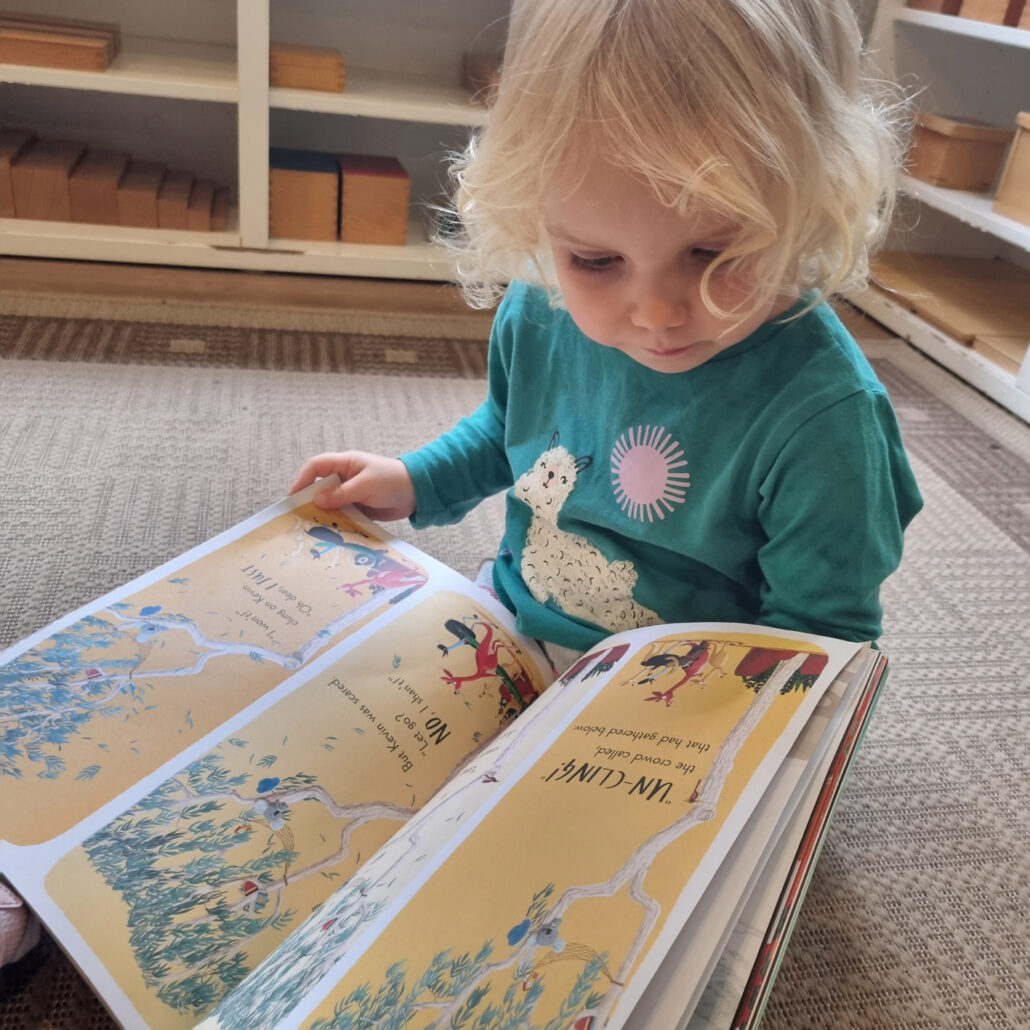
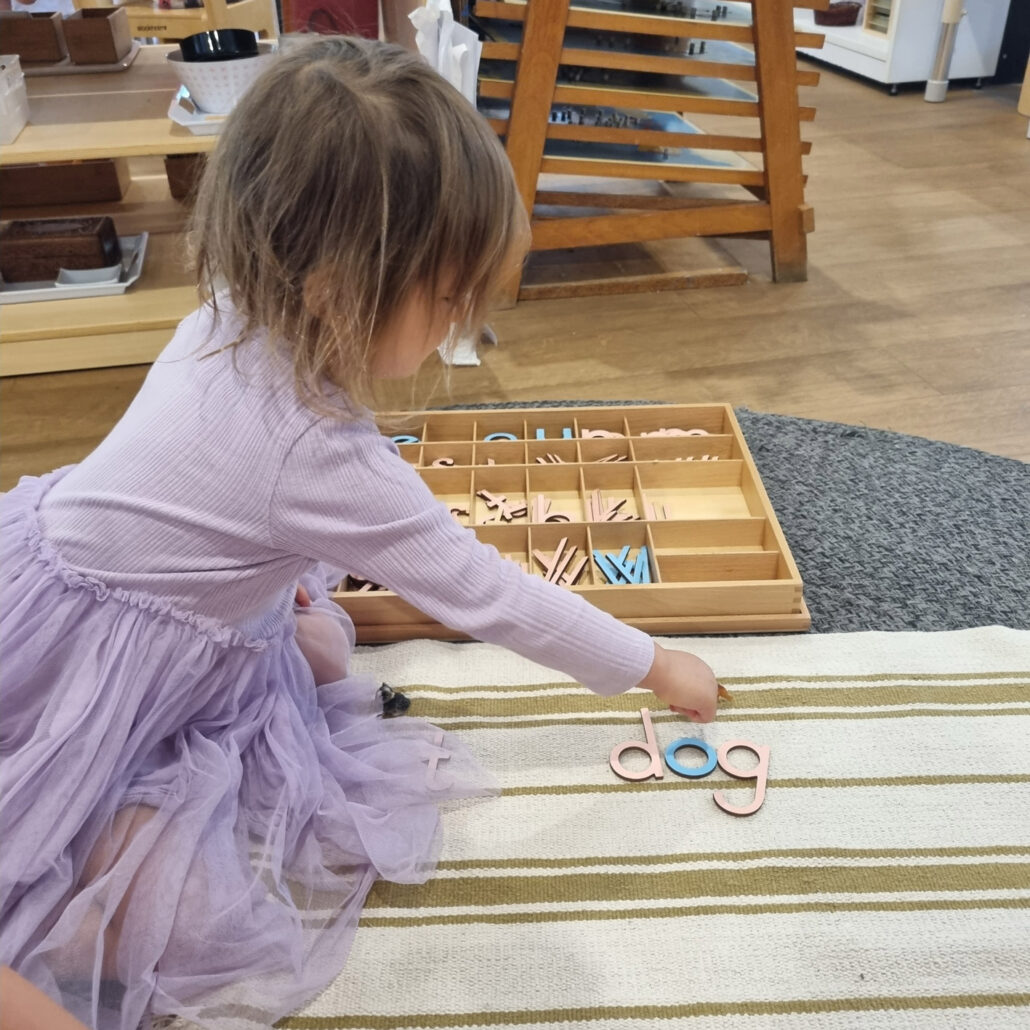
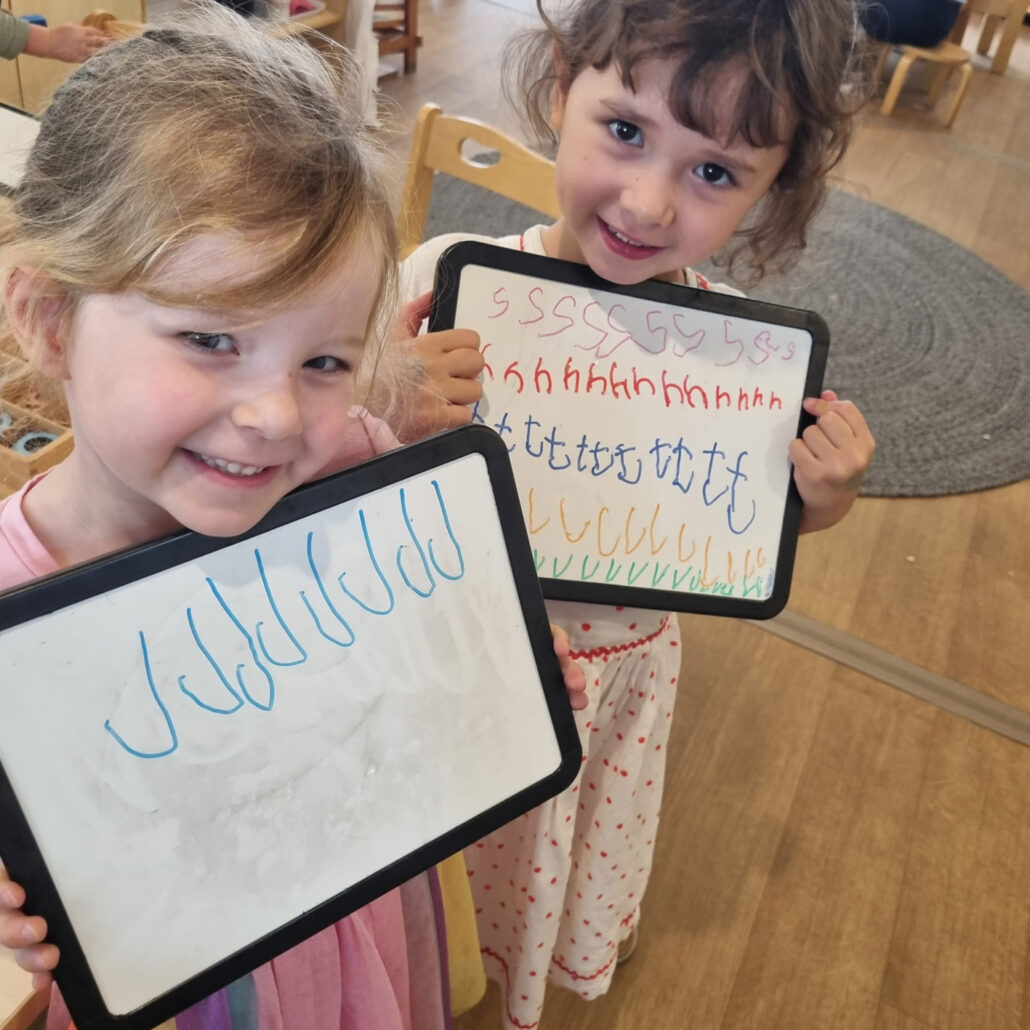
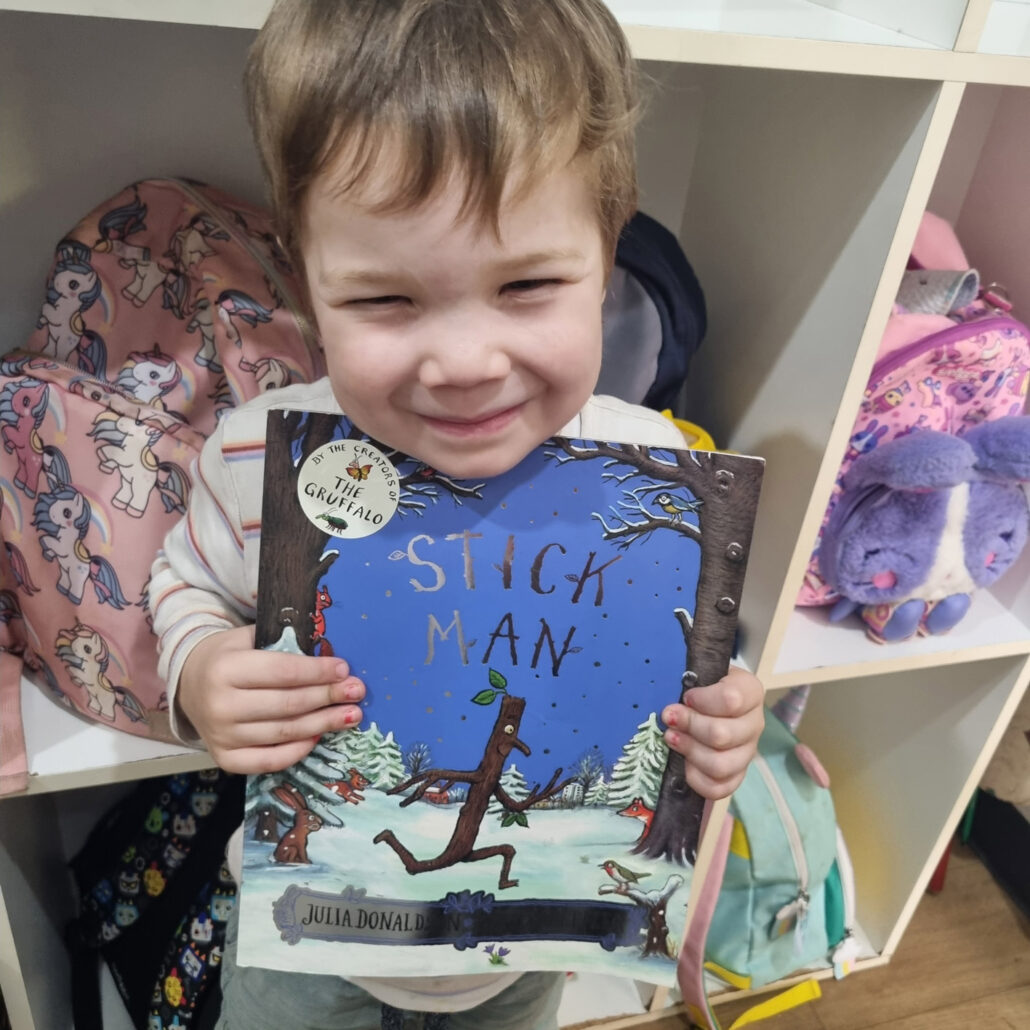
COOINDA | Stage 1
This term in Cooinda, the children have engaged in a variety of activities designed to expand their vocabulary, refine their fine motor skills, and develop the foundation for writing and reading.
In a Montessori-prepared environment, children explore language picture cards, which help them connect spoken words with images, enriching their vocabulary and understanding of the world around them. They also develop essential pre-writing skills through metal insets, which strengthen pencil grip and hand-eye coordination, and by tracing sandpaper letters, which reinforce letter recognition through tactile learning. Additionally, children practice letter formation in sand trays, allowing them to refine their movements in a sensory-rich way.
Once a child becomes familiar with many letters of the alphabet, they are introduced to the moveable alphabet. This material allows them to express their thoughts by building words phonetically, even before they have mastered handwriting. It serves as a bridge between spoken and written language, fostering confidence in early writing and reading.
Through repeated exposure to these carefully sequenced activities, children develop a strong foundation in language, preparing them for the exciting journey of reading and writing with confidence and joy.
—Jo, Catalina, Rachel, Yuko and Claire.
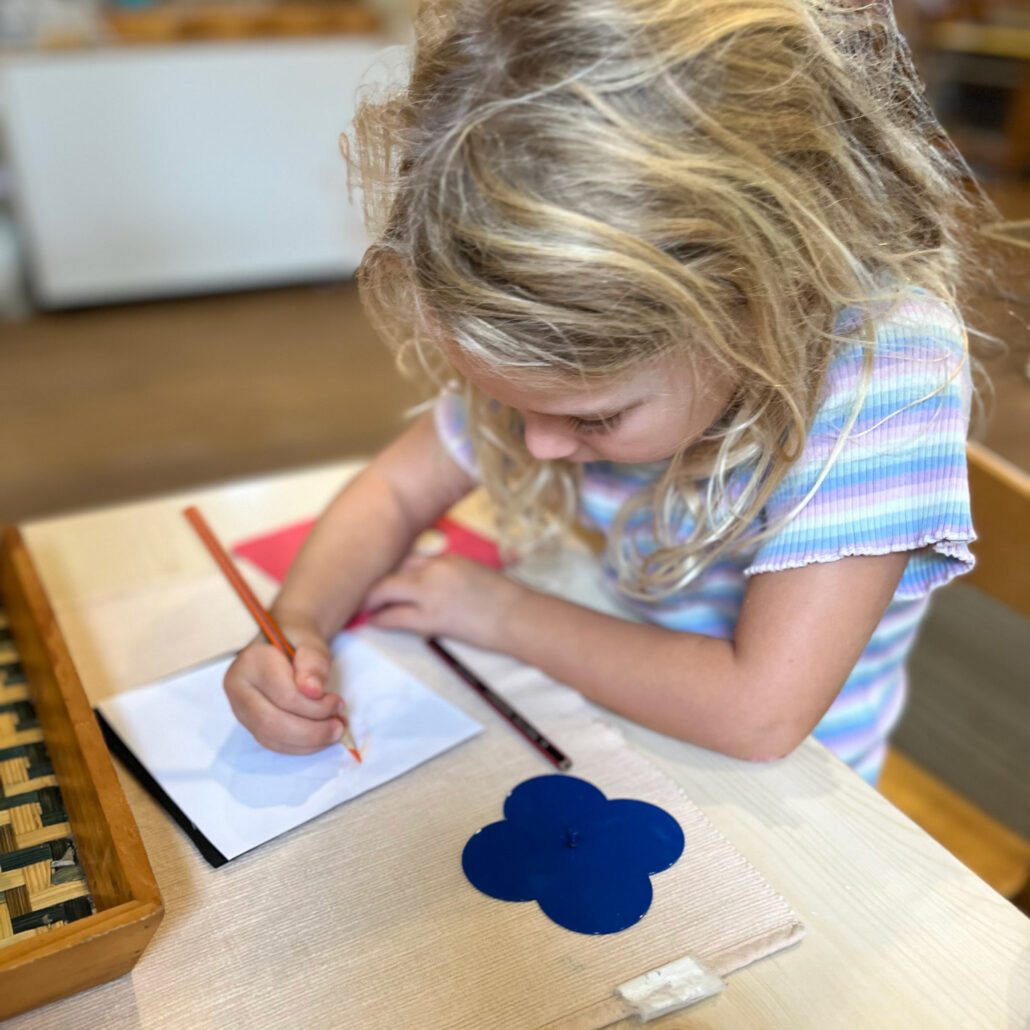
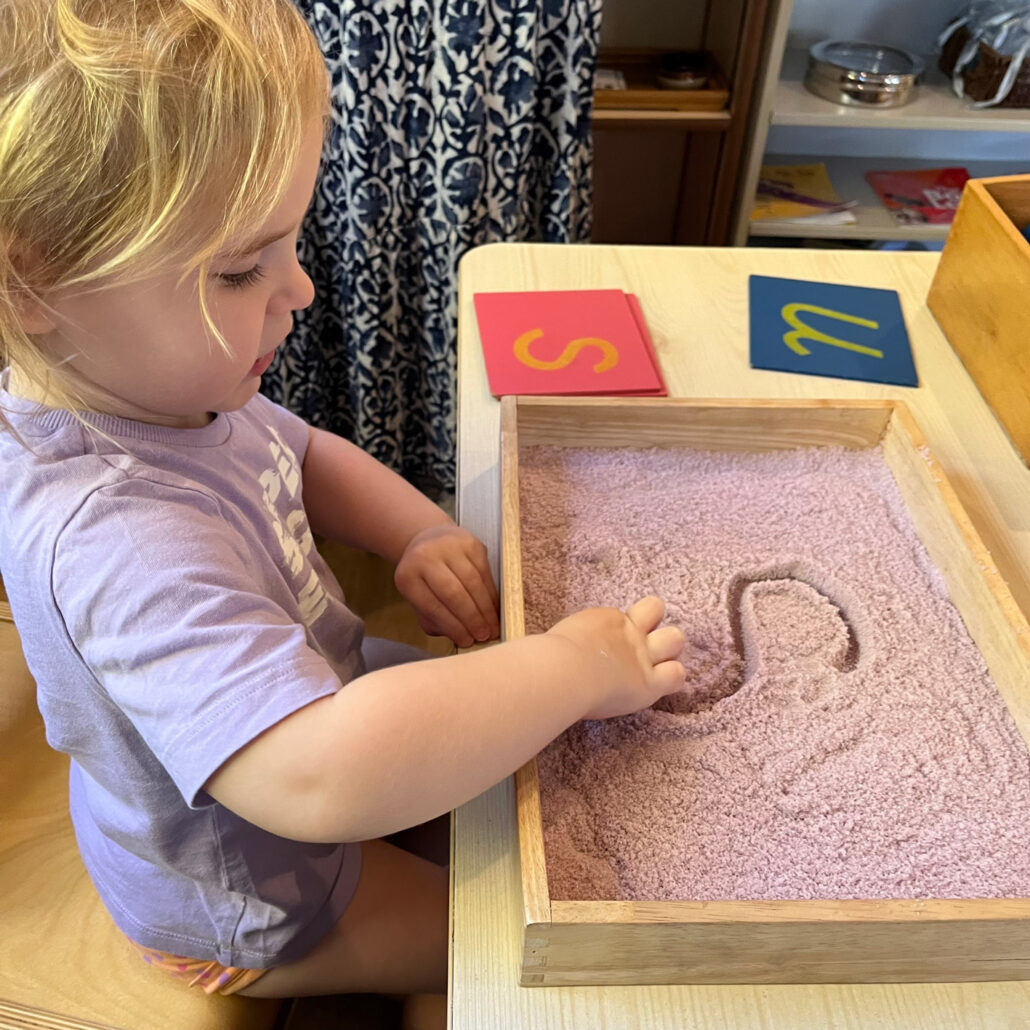
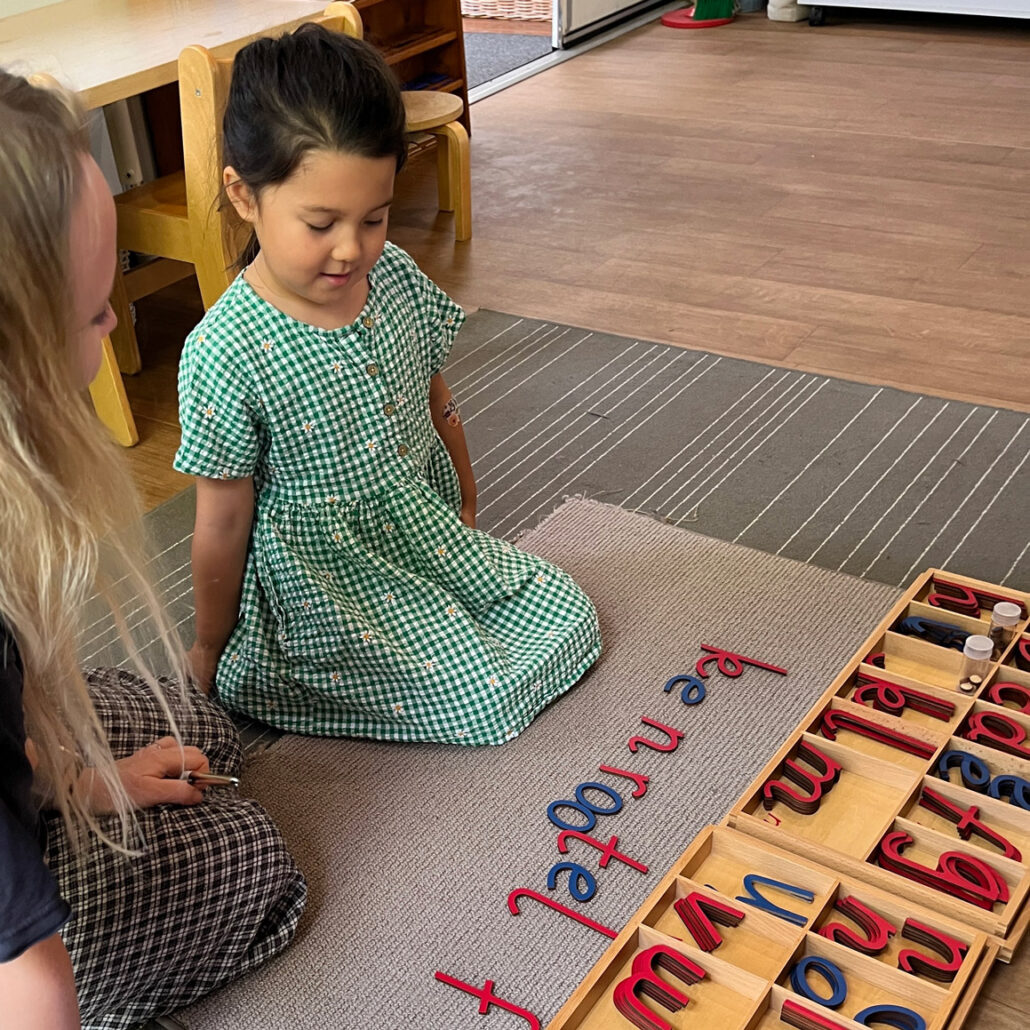
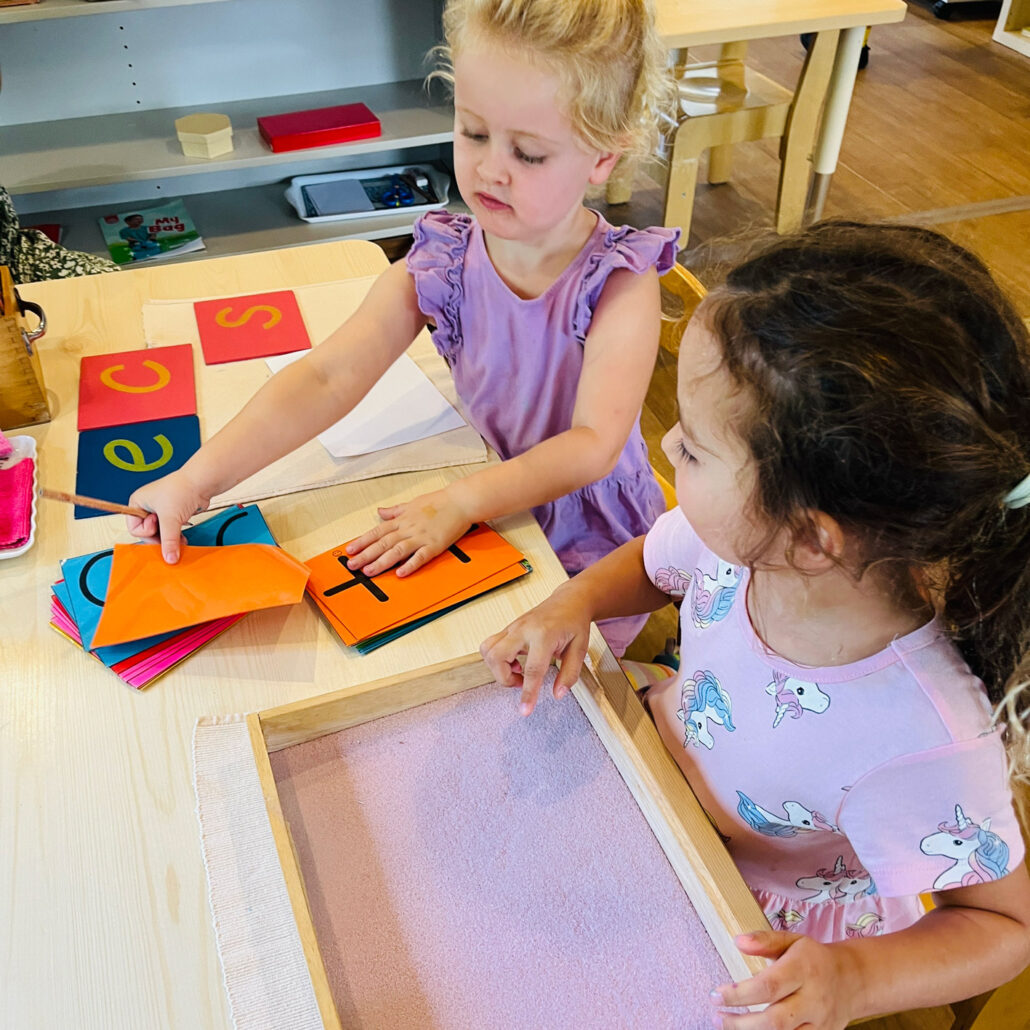
AMAROO | OUTDOOR CLASSROOM
As educators we observe daily how language development unfolds naturally when children are immersed in a prepared environment rich in spoken and written words. Through purposeful conversations, storytelling, and hands-on experiences, children expand their vocabulary and comprehension at their own pace. The Montessori materials, such as the Sandpaper Letters and the Moveable Alphabet, provide tactile experiences that support literacy development. Fiction and non fiction books introduce diverse language structures, and imaginative play fosters creativity. Everyday activities, from practical life exercises to build strength in their hands for writing to group discussions on topics of interest, build confidence and self-expression. By fostering a language-rich environment that encourages exploration and independence, we empower children with the skills they need for lifelong learning and meaningful communication.
—Dawn.
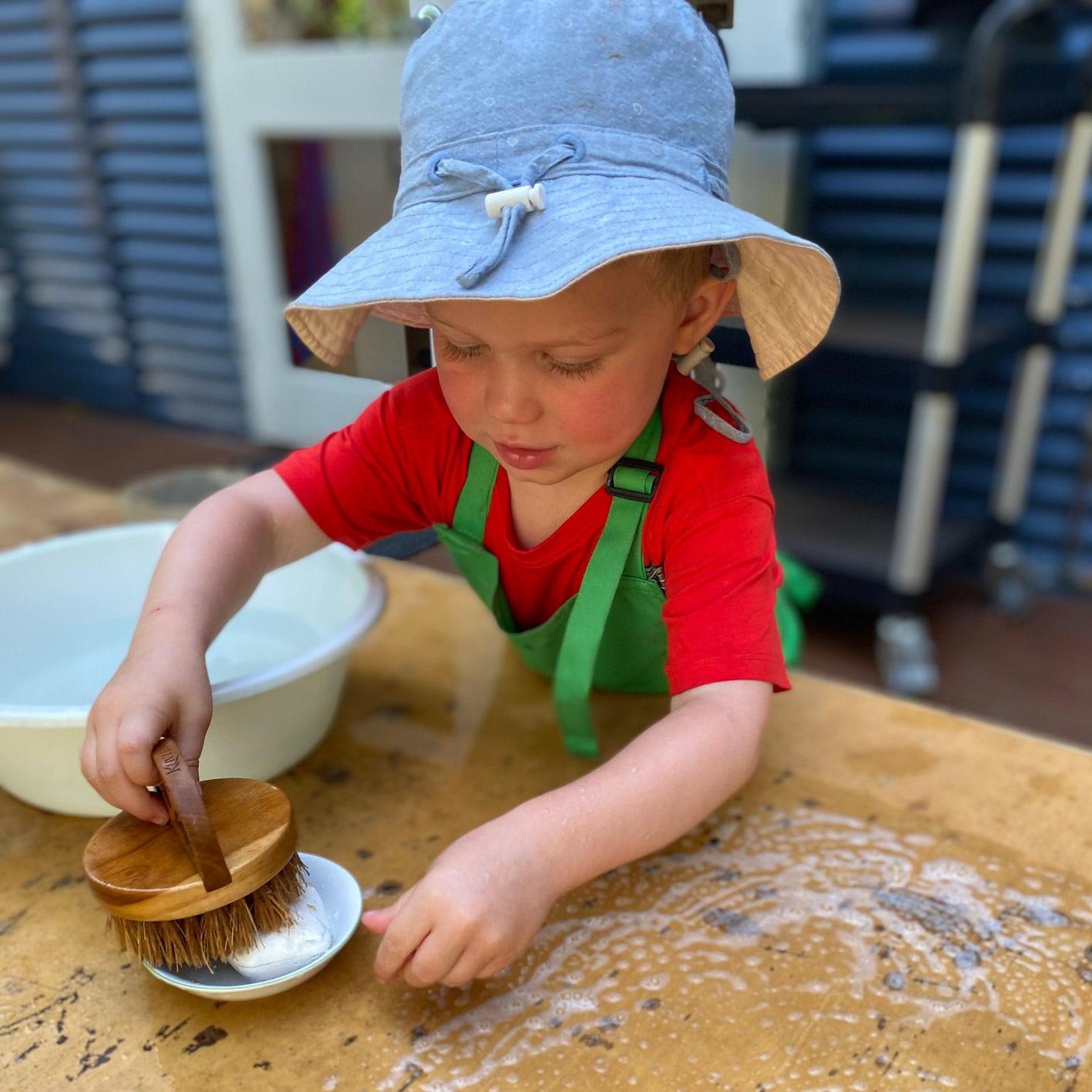
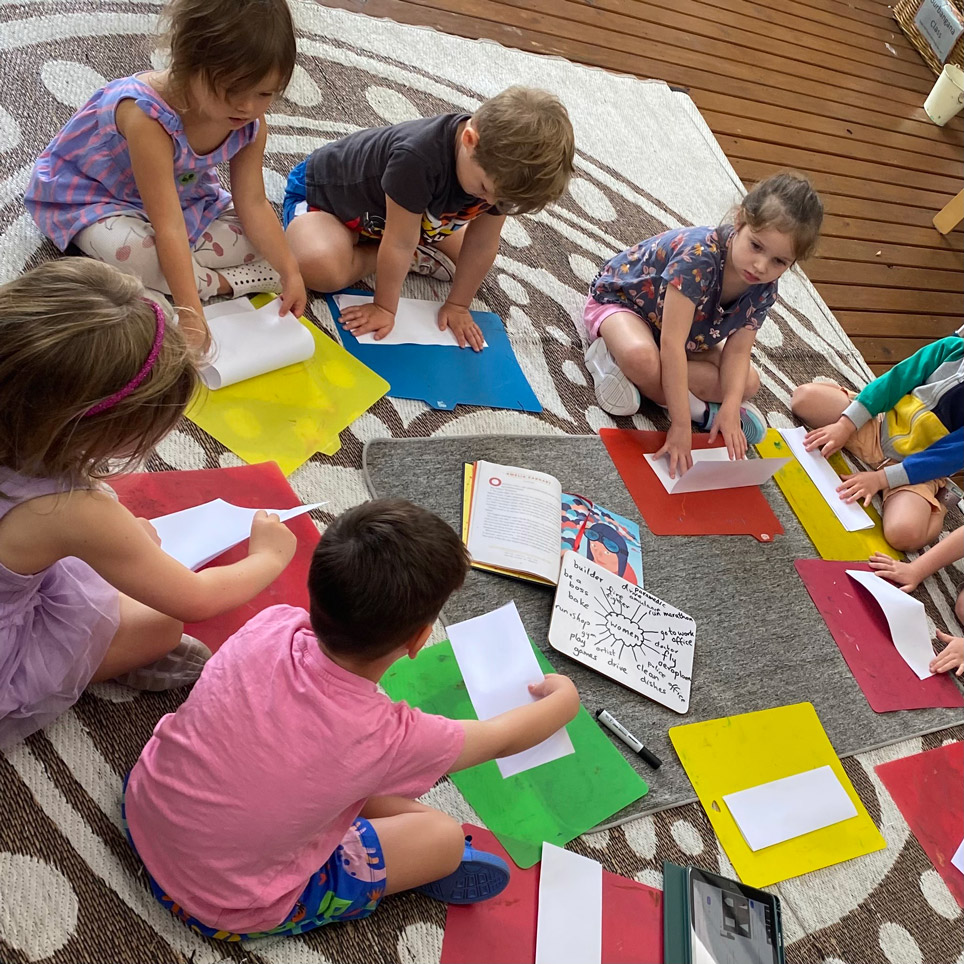
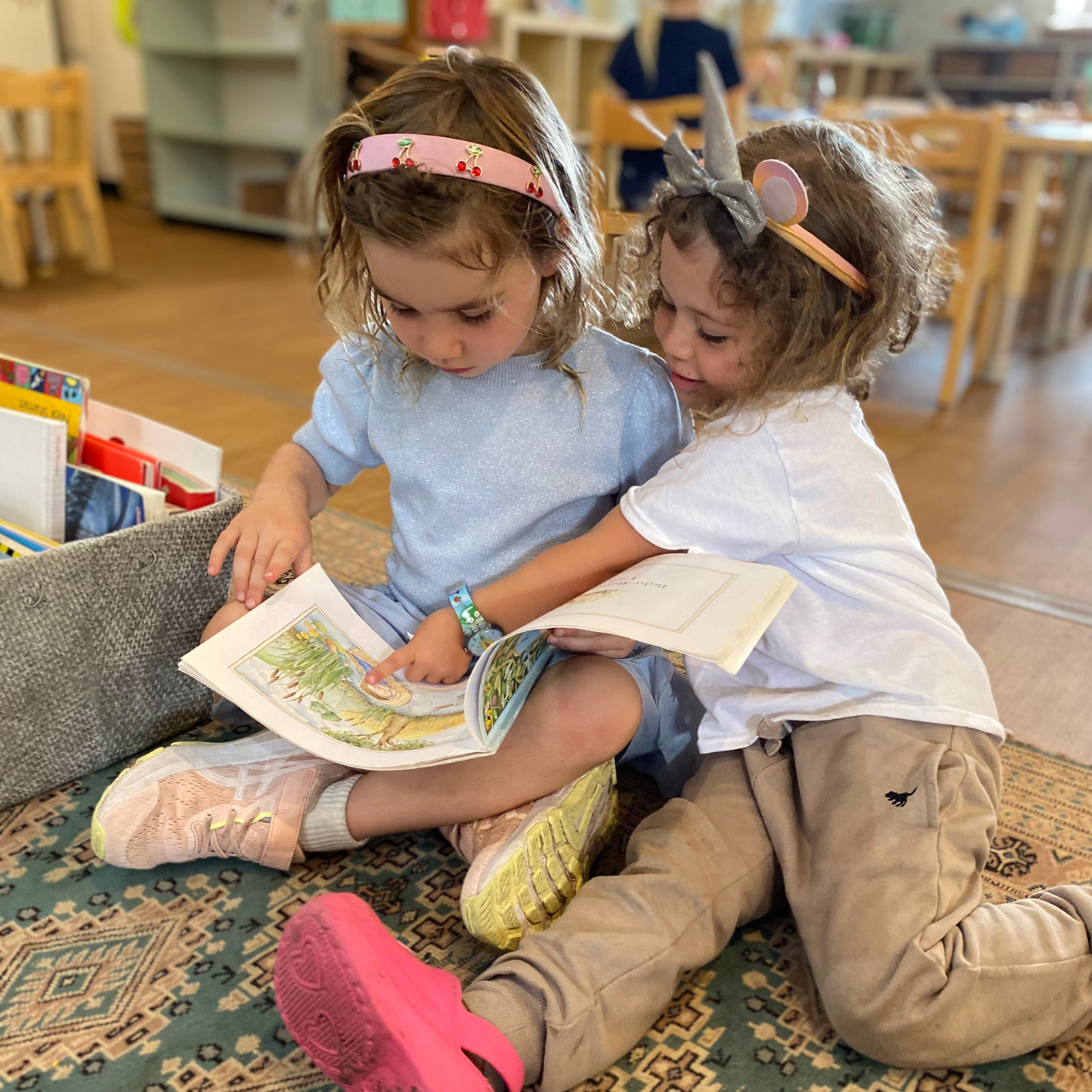
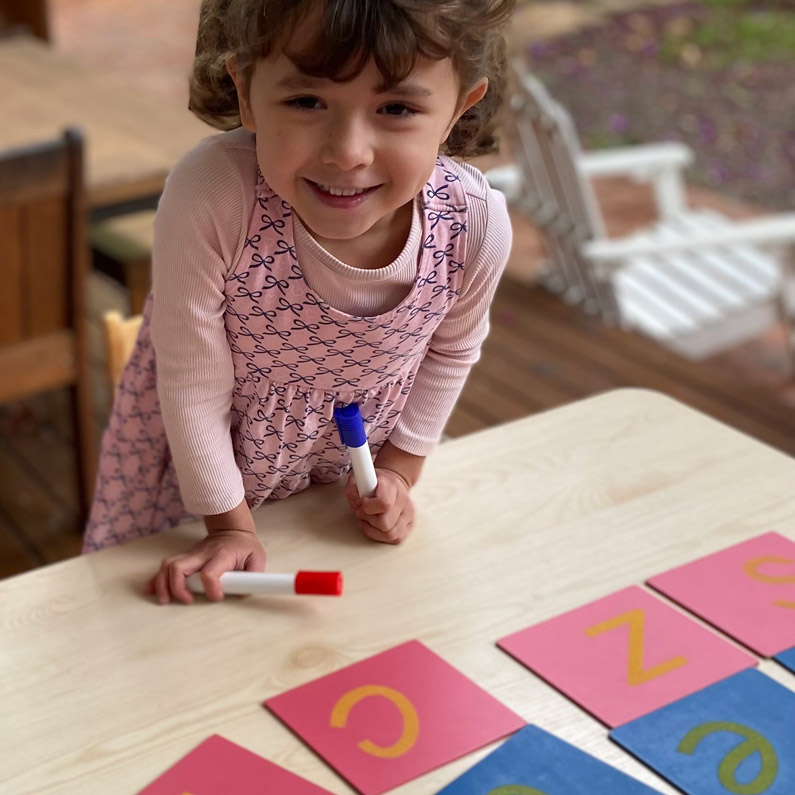
ORANA | Stage 2
One of the unique aspects of our Montessori primary school is the natural connection between classrooms, fostering a rich and supportive learning community. While the children in Orana complete their daily work cycle in their own environment, they also have the opportunity to interact with students from other classrooms. These moments of connection allow for valuable peer learning, as older students share their knowledge and skills with younger ones. As seen in the photos, our older students take pride in showing their work or even guiding the younger children through a lesson, reinforcing their own understanding while nurturing confidence and leadership.
Beyond academic learning, these cross-classroom interactions help cultivate meaningful relationships. Whether it’s through collaborative projects, shared discussions, or simply observing older peers at work, the children gain a sense of belonging to a wider community. These experiences encourage a deeper understanding, independence, and mutual respect.
Playtime and sports offer yet another wonderful opportunity for friendships to grow beyond the classroom. Whether they are playing a game together, cheering on their peers, or engaging in a friendly challenge, these moments strengthen their social bonds. The joy of movement and teamwork fosters cooperation, inclusion, and a deep sense of connection that continues long after the school day ends.
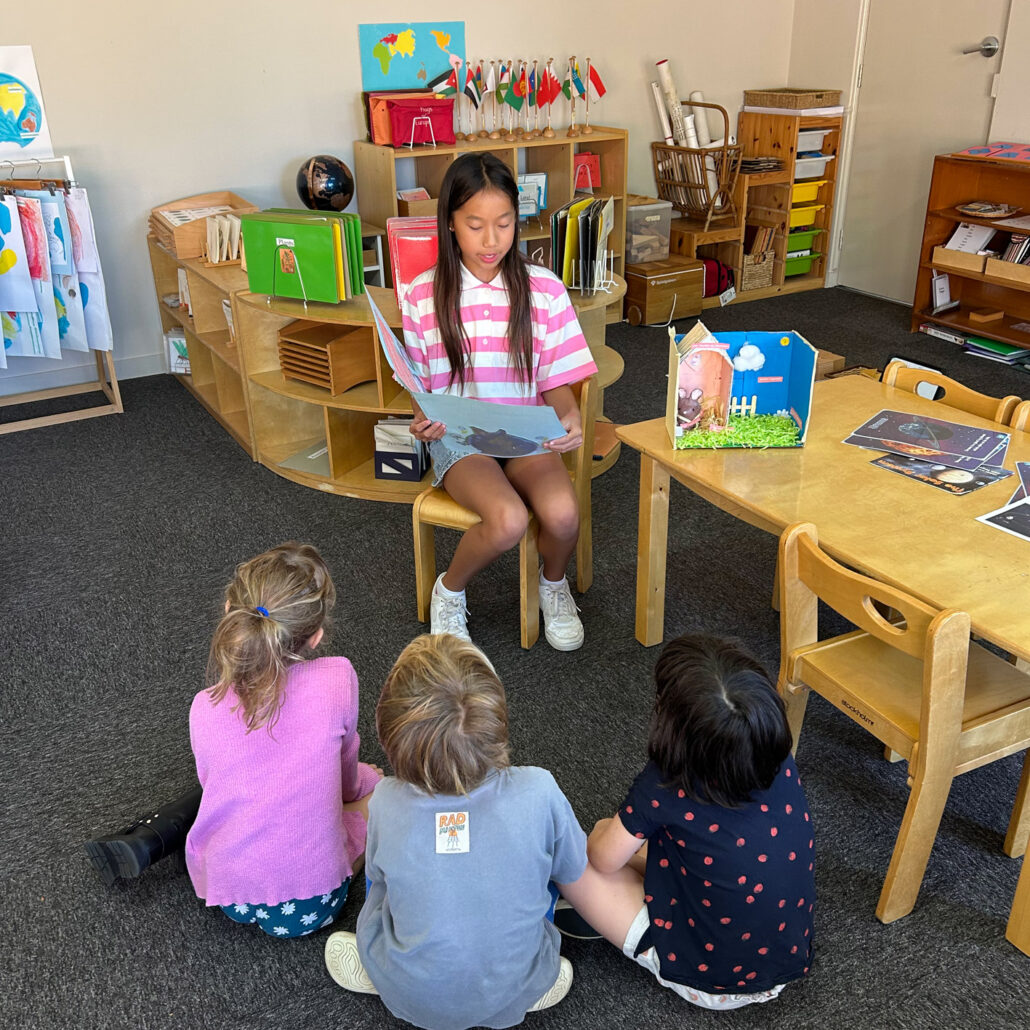
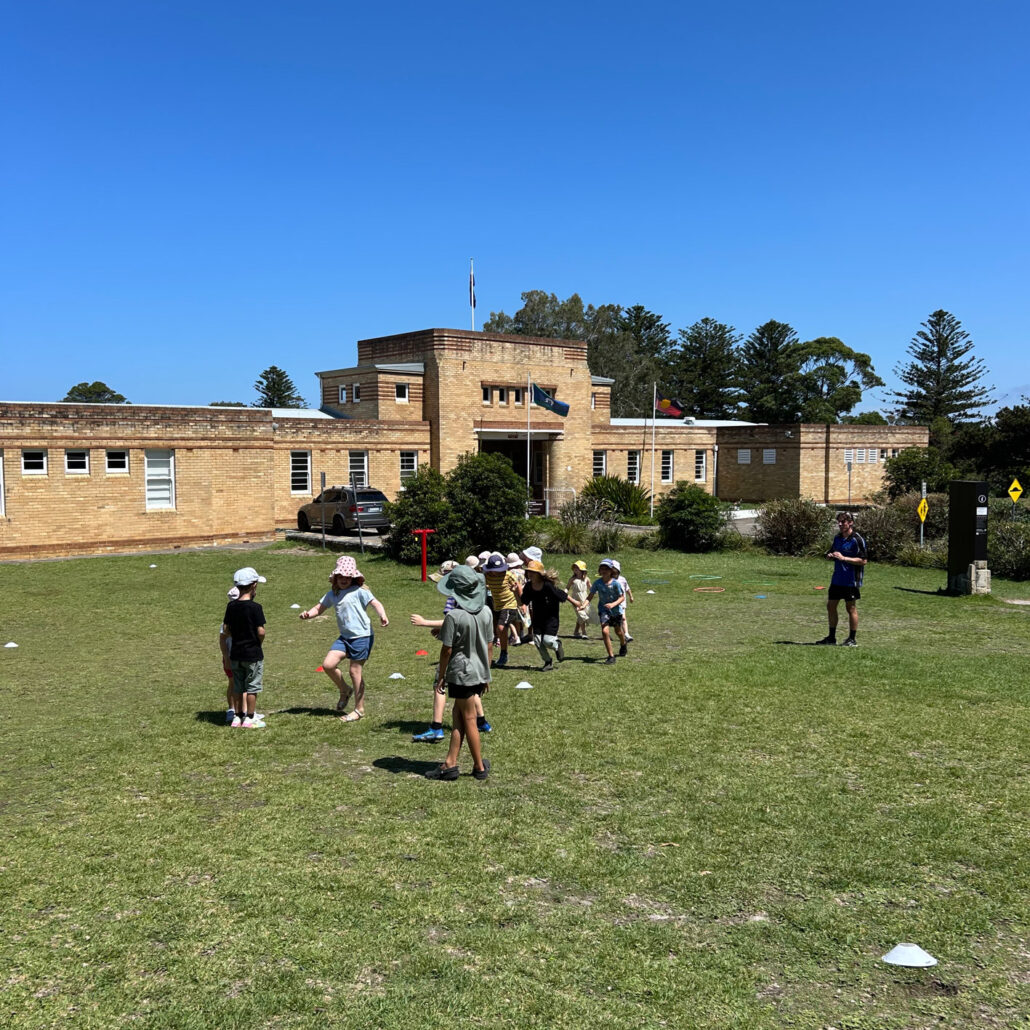
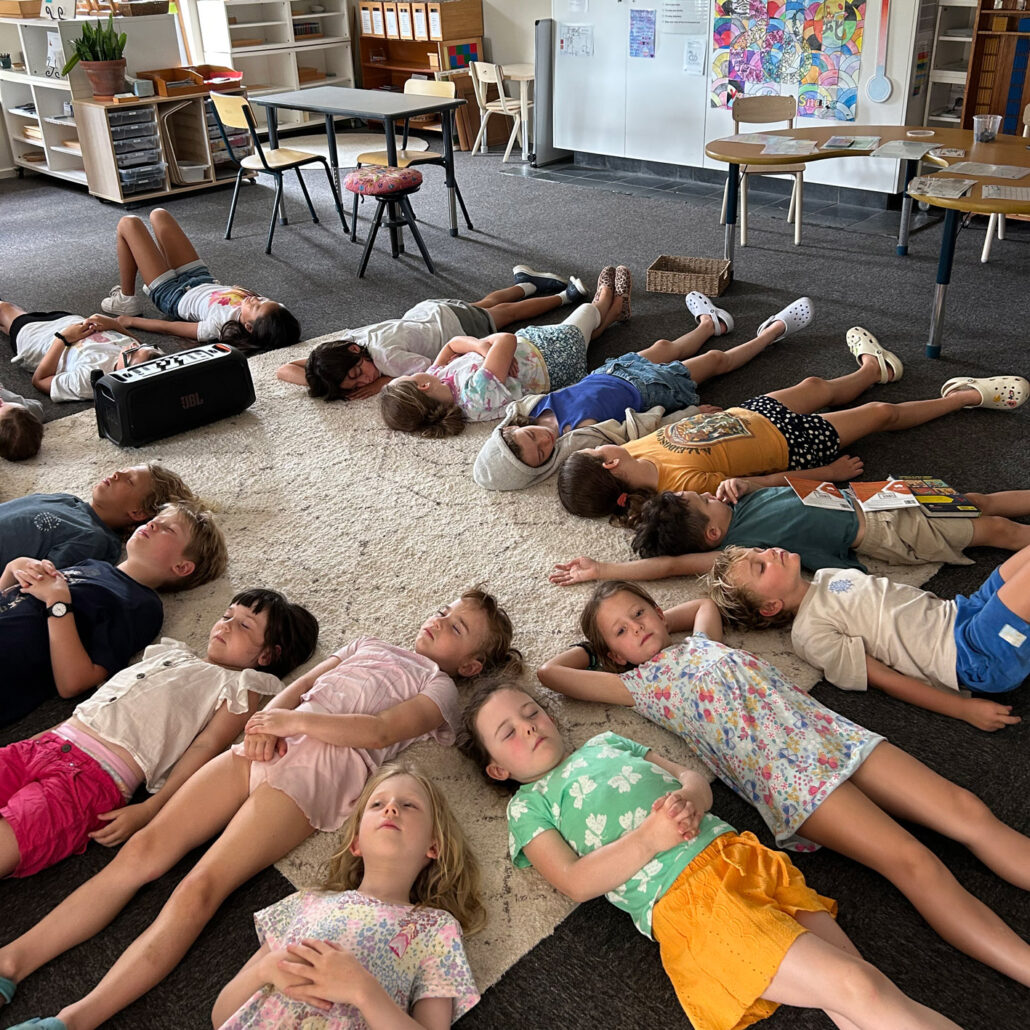
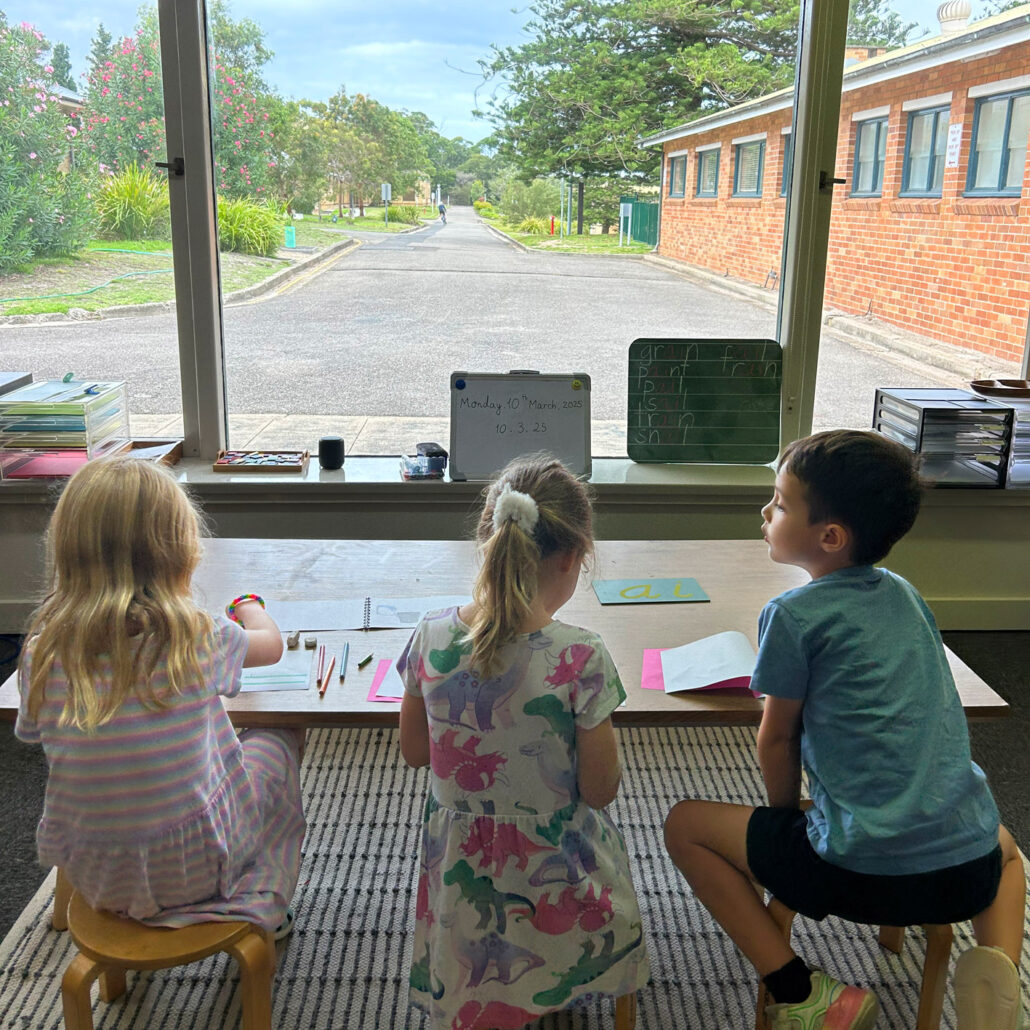
AIKYA | Stage 2
Dear Aikya Families,
Theme: Choice and Responsibility
As we move toward the end of Term 1, we find ourselves reflecting on one of the guiding principles of our Montessori practice: choice, and the deep, developing understanding of responsibility that grows with it.
In Cycle 2, children are invited daily to make choices about how they use their time and which work they pursue—within the boundaries of a thoughtfully prepared environment. These choices are not just about freedom, but about learning the art of balancing freedom with responsibility. This term, it’s been beautiful to observe the children’s growing awareness of their role within our Aikya community—how their choices affect not only themselves, but those around them.
Our Great Story of Human Evolution has offered the perfect backdrop for this theme. From the resourceful ways of the Paleolithic hunter-gatherers to the innovative settlements of the Neolithic people, the children have been inspired by how early humans made choices that shaped the future. Through research, art, storytelling, and timeline work, the students have begun to explore what it means to adapt, contribute, and take responsibility in a community.
In parallel, we’ve delved into the Story of Writing, tracing the development of written communication from pictographs to alphabets. The children have loved creating their own scrolls—some resembling the famous Dead Sea Scrolls—which has sparked deep discussions about the responsibility we carry when we record, share, and interpret stories across time.
In literacy, our narrative and fable studies have brought the exploration of moral choice to the forefront. As the children write their own fables and analyze the actions of characters, we are witnessing thoughtful reflections on cause and effect, justice, kindness, and consequences. These stories become springboards for conversations that connect directly to their own experiences in the classroom and playground.
The use of Montessori materials in Mathematics and Language continues to anchor the children in deep, hands-on learning, giving them the tools to approach abstract concepts with growing confidence and independence.
A new Friday tradition has blossomed: Focaccia Fridays! Each week, a pair of children take on the responsibility of baking bread for our shared lunch. With careful measuring, kneading, and timing, they offer a delicious and heartfelt gift to the group. It’s quickly become a highlight of the week and a tangible expression of care, contribution, and responsibility.
Our learning extended beyond the classroom walls with a visit from the North Head ecologist, who shared valuable insights into habitat and animal management within the sanctuary. The children asked thoughtful questions and were inspired to think more deeply about how we all share responsibility for the land we live and learn on.
A heartfelt congratulations to our Year Three students who recently completed their NAPLAN assessments with focus, resilience, and a positive spirit. In the lead-up, they supported one another through gentle practice sessions and open conversations about what to expect, approaching the experience as a shared journey rather than a test. It was clear to see that each child gave their best effort, embraced the challenge with confidence, and walked away with a sense of accomplishment—having participated in one of life’s learning experiences with grace and pride. Well done, Year Threes!
As the term draws to a close, project presentations have filled our afternoons with excitement and pride. Children have stepped into the role of researcher and presenter with growing poise and clarity—sharing everything from prehistoric tools to endangered animals—with evident joy in their learning and respect for the audience they address.
The Aikya classroom continues to hum with the quiet purpose and warmth of a community in motion. In every corner, you can see children working not just for themselves, but with one another, guided by their growing sense of responsibility and supported by the trust we place in them to choose wisely, explore deeply, and care for their space and each other.
We are so proud of all they are becoming.
Warm regards,
—The Aikya Team.
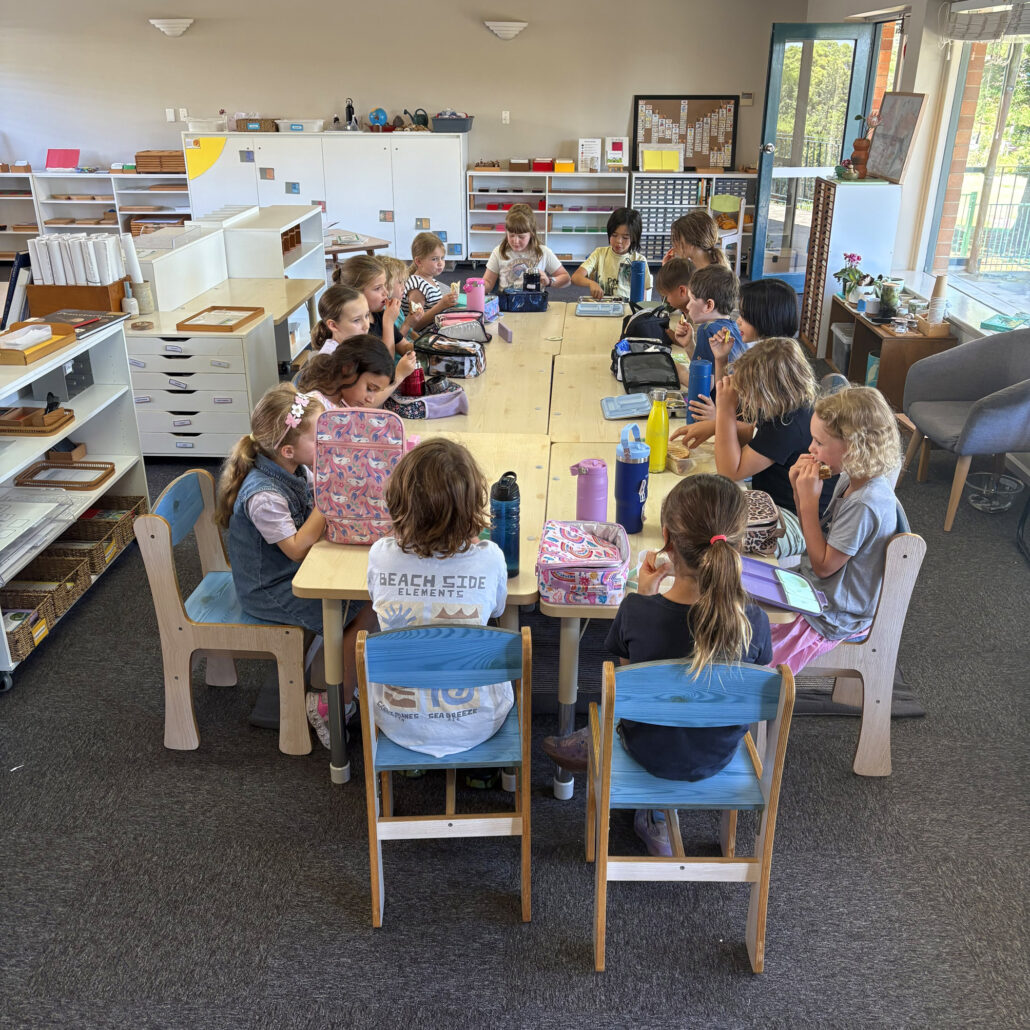
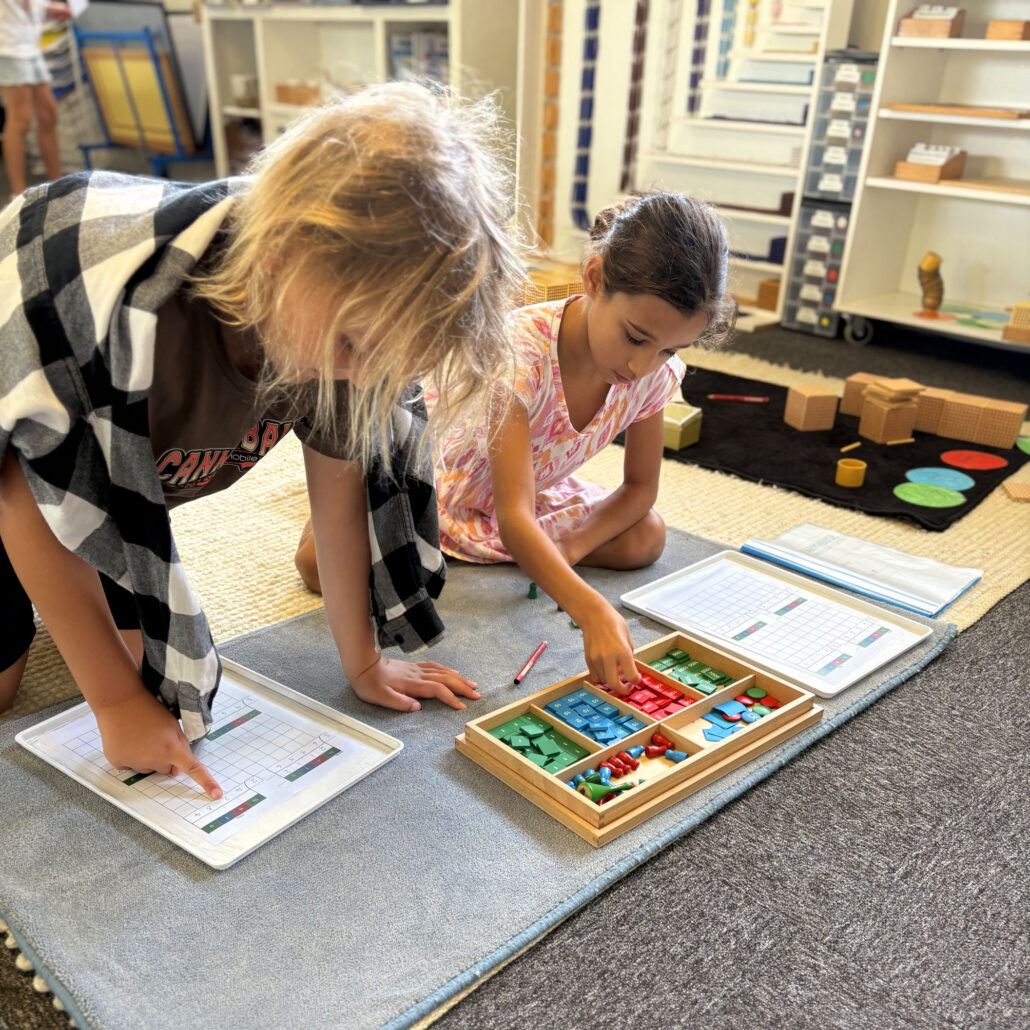
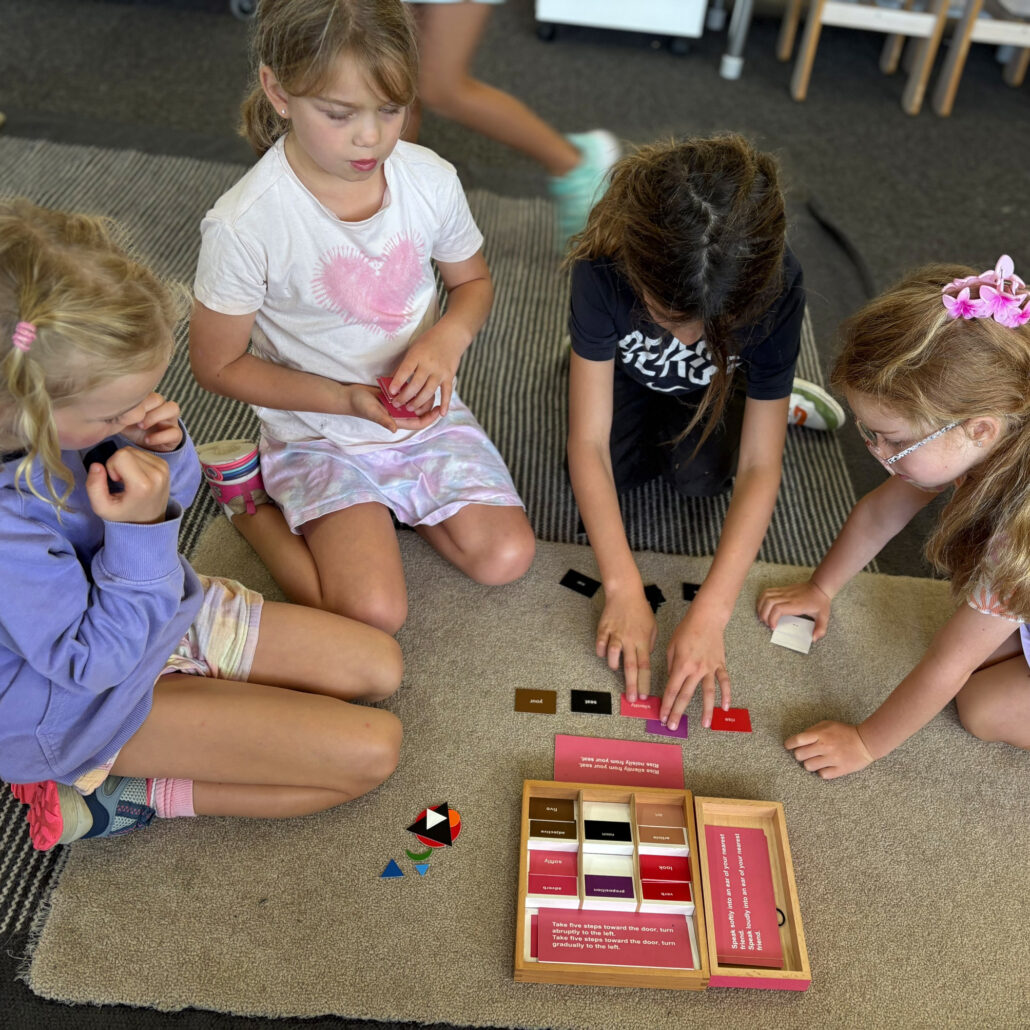
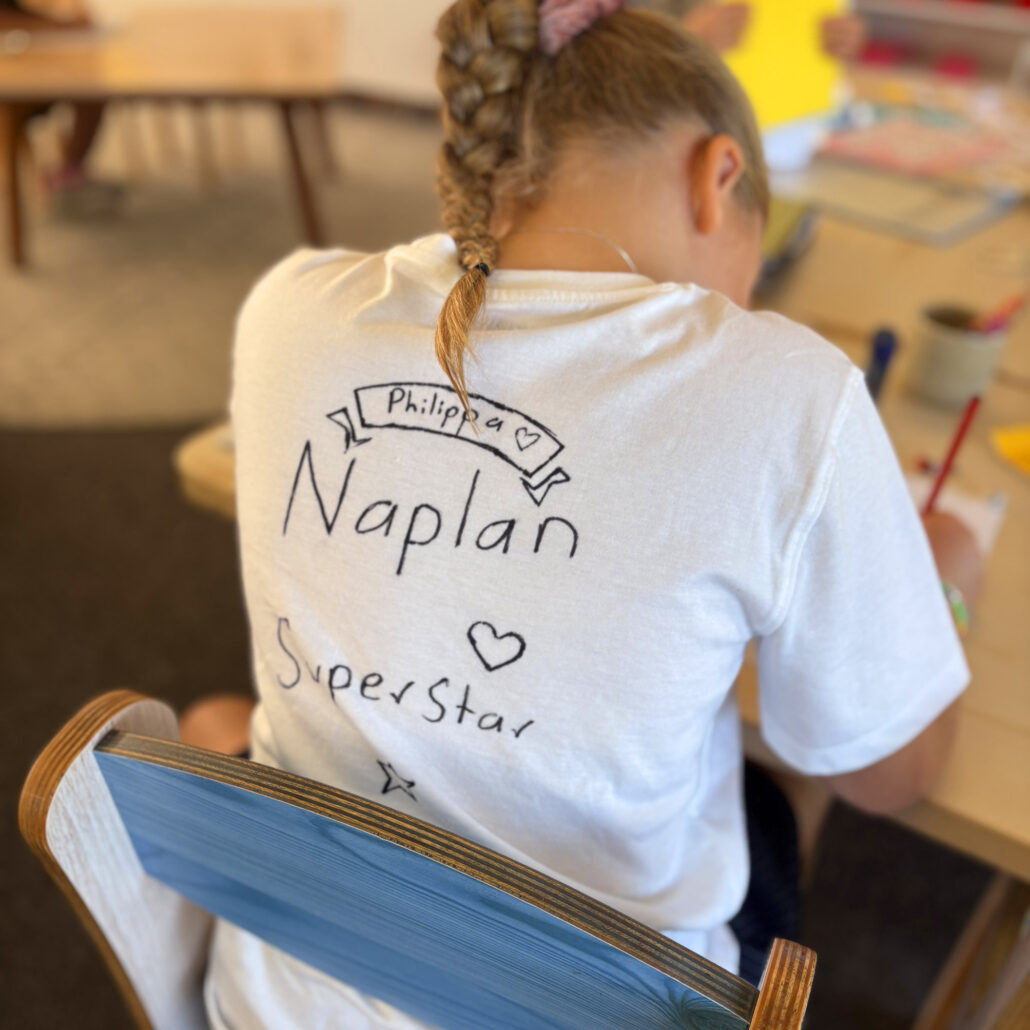
YANI | Stage 3
This term, Yani students have been diving into language and creativity, from crafting persuasive speeches to experimenting with poetry and storytelling. Whether debating big ideas or finding just the right word for their writing, they’ve tackled each challenge with curiosity (and the occasional dramatic hand gesture). With a prepared environment that encourages expression, they’ve grown – whether on paper, in discussion, or while convincing their classmates that their point of view is obviously the best (and only) one.
Beyond writing, Yani have been making music, expanding their French vocabulary, and bringing stories to life during Friday reading sessions with the younger Orana students. And of course, their sailing adventures wrapped up in style – with a strong grasp of sailing jargon, newfound confidence on the water, and an impressive collection of rubber ducks making their final voyage. It turns out, even in the open sea, Yani students know how to have a little fun!
—Laura, Thomas, Ella & Amy Louise.
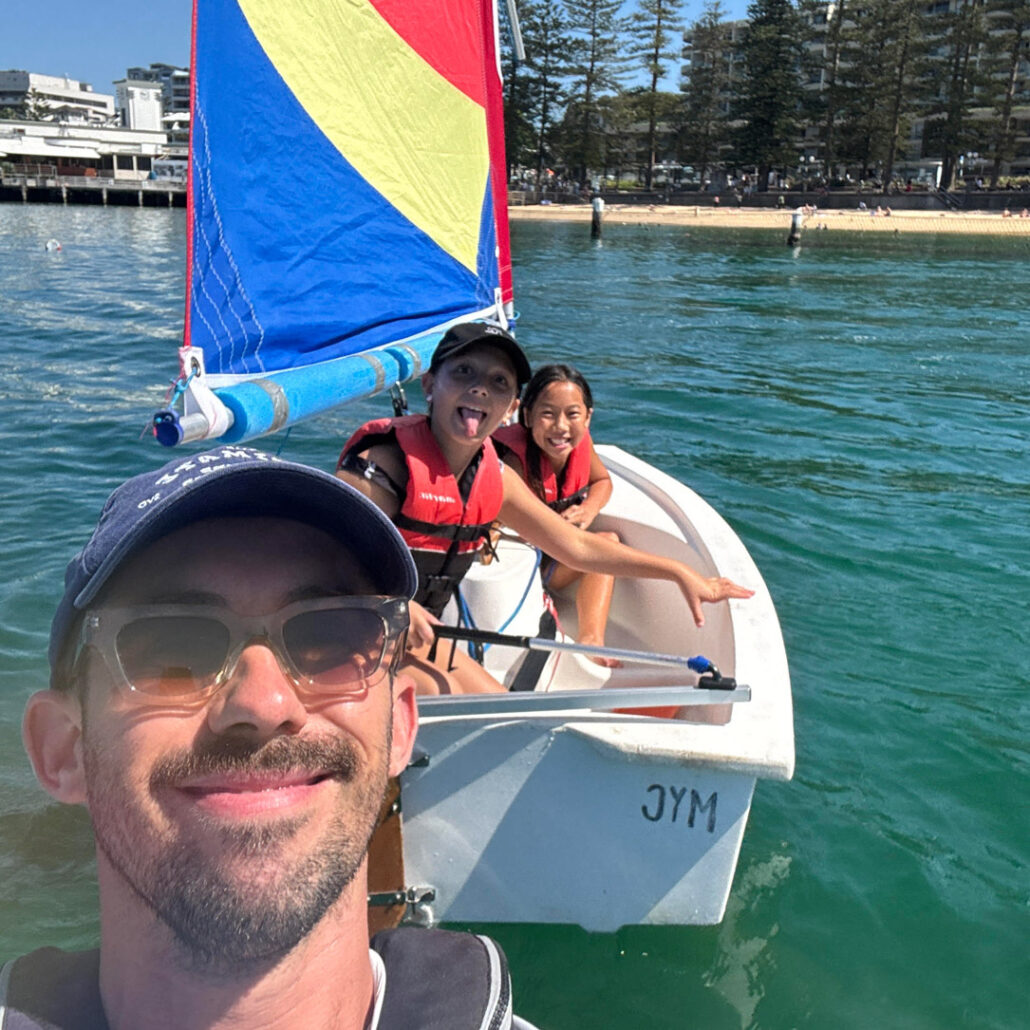
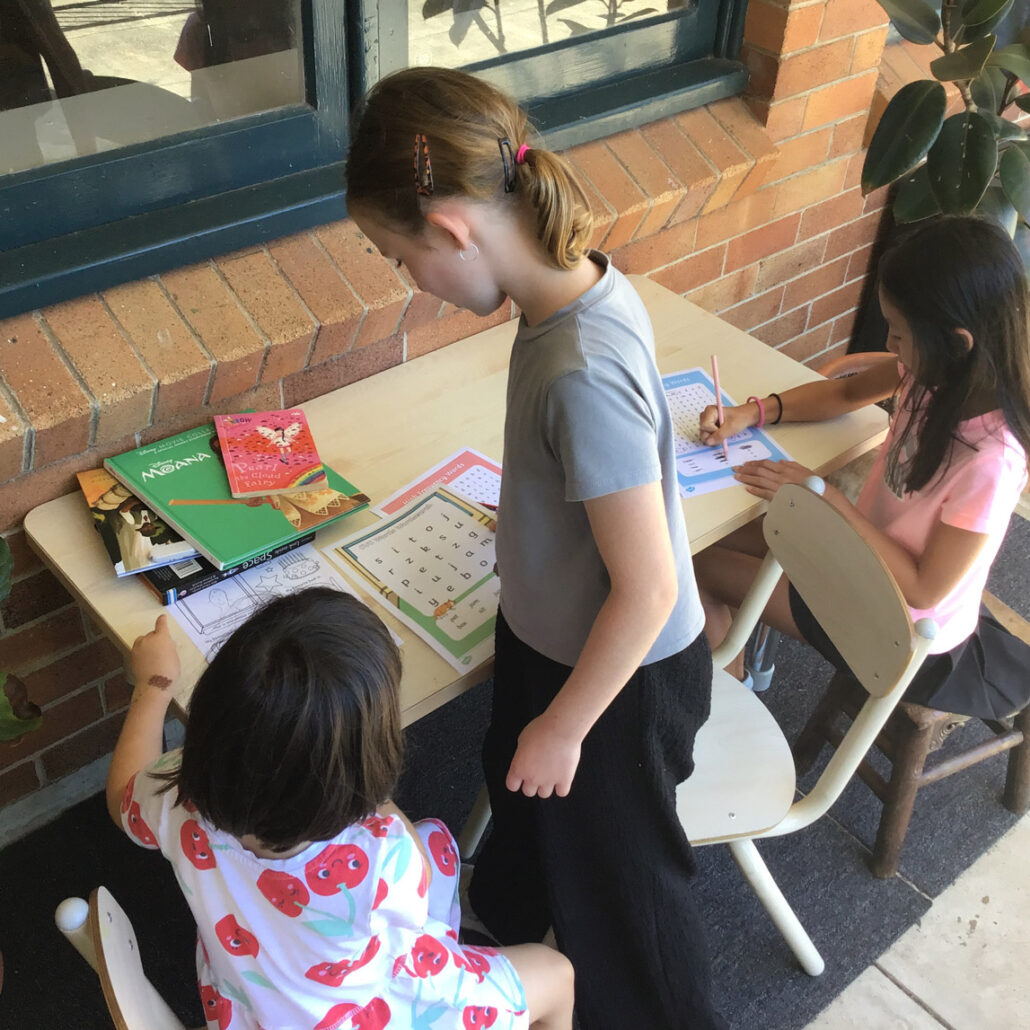
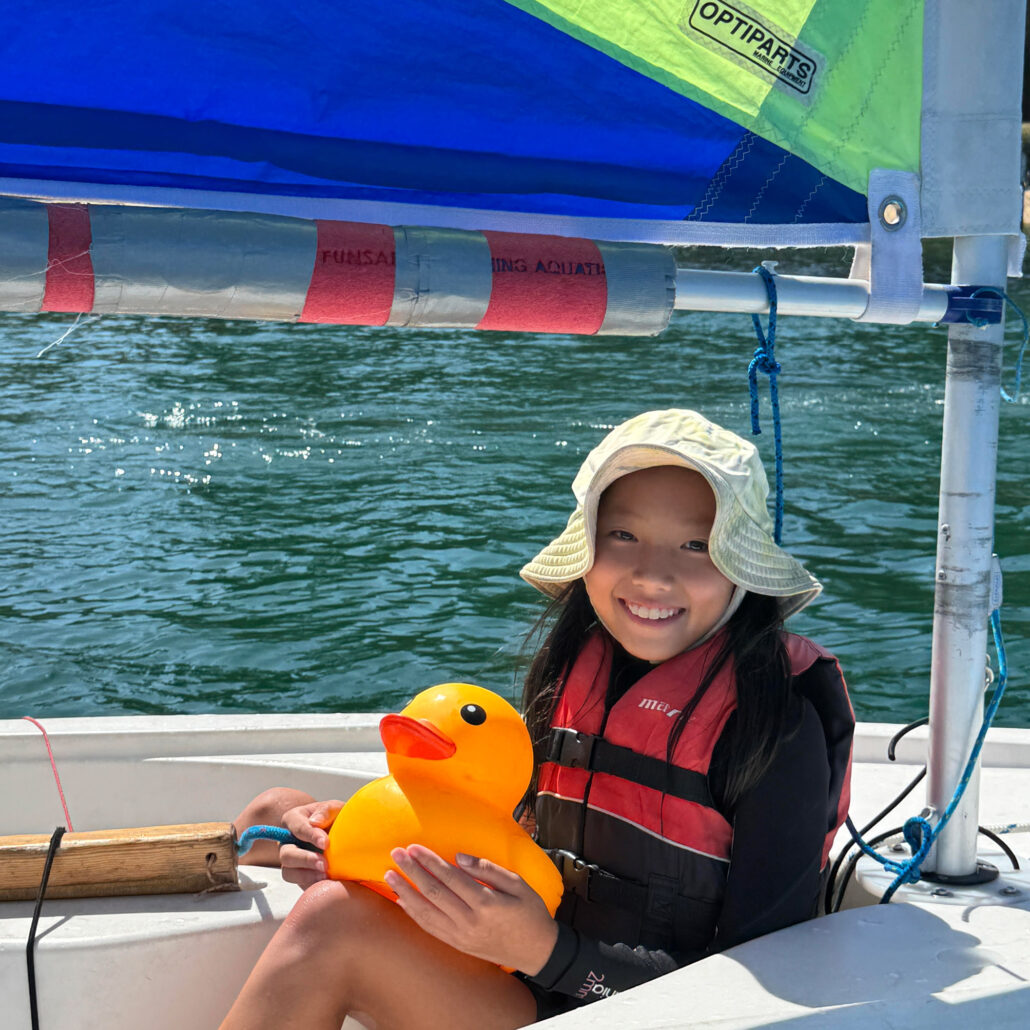
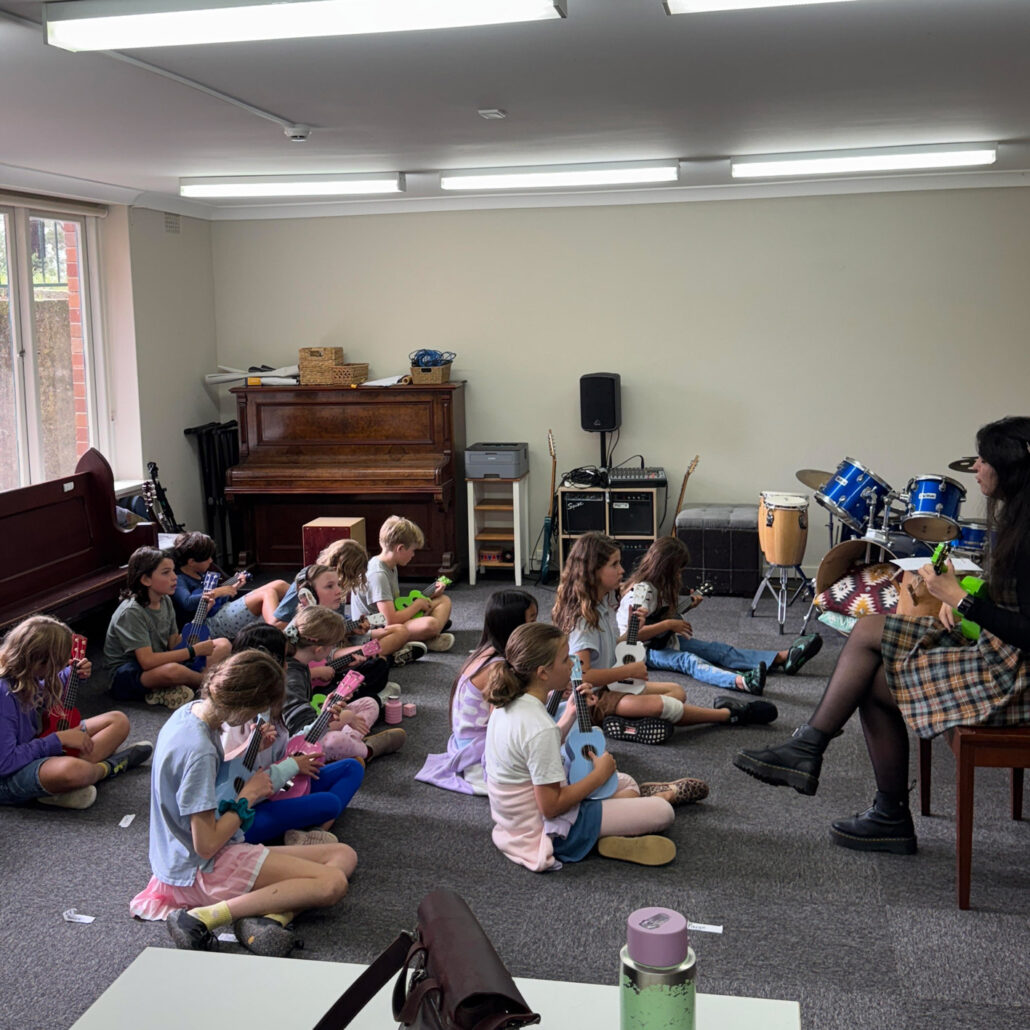
You may also like
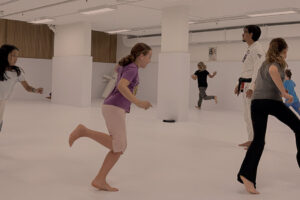
2025 Newsletter Term 02 | Issue 01
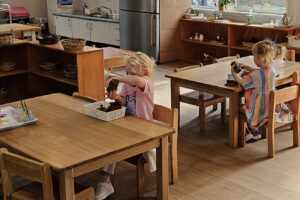
2025 Newsletter Term 01 | Issue 01
